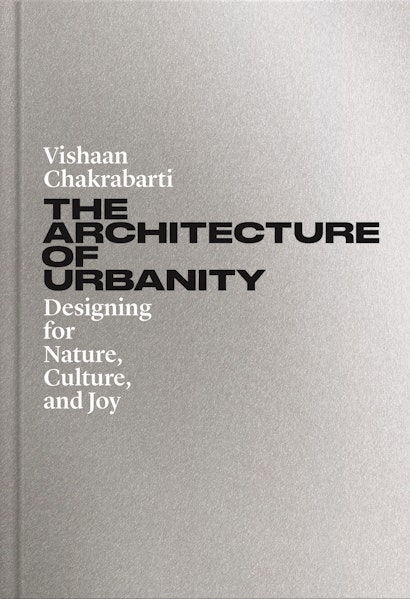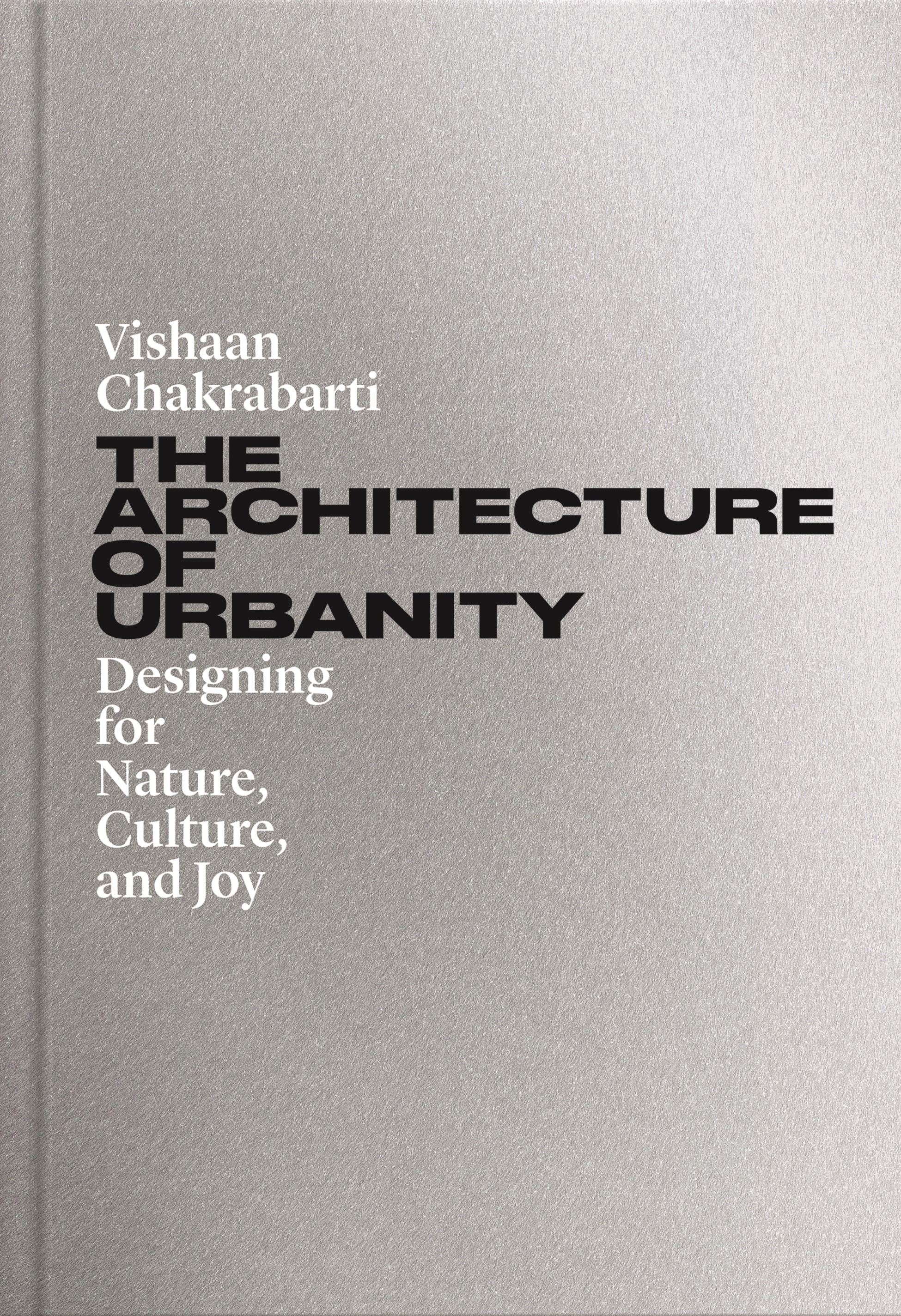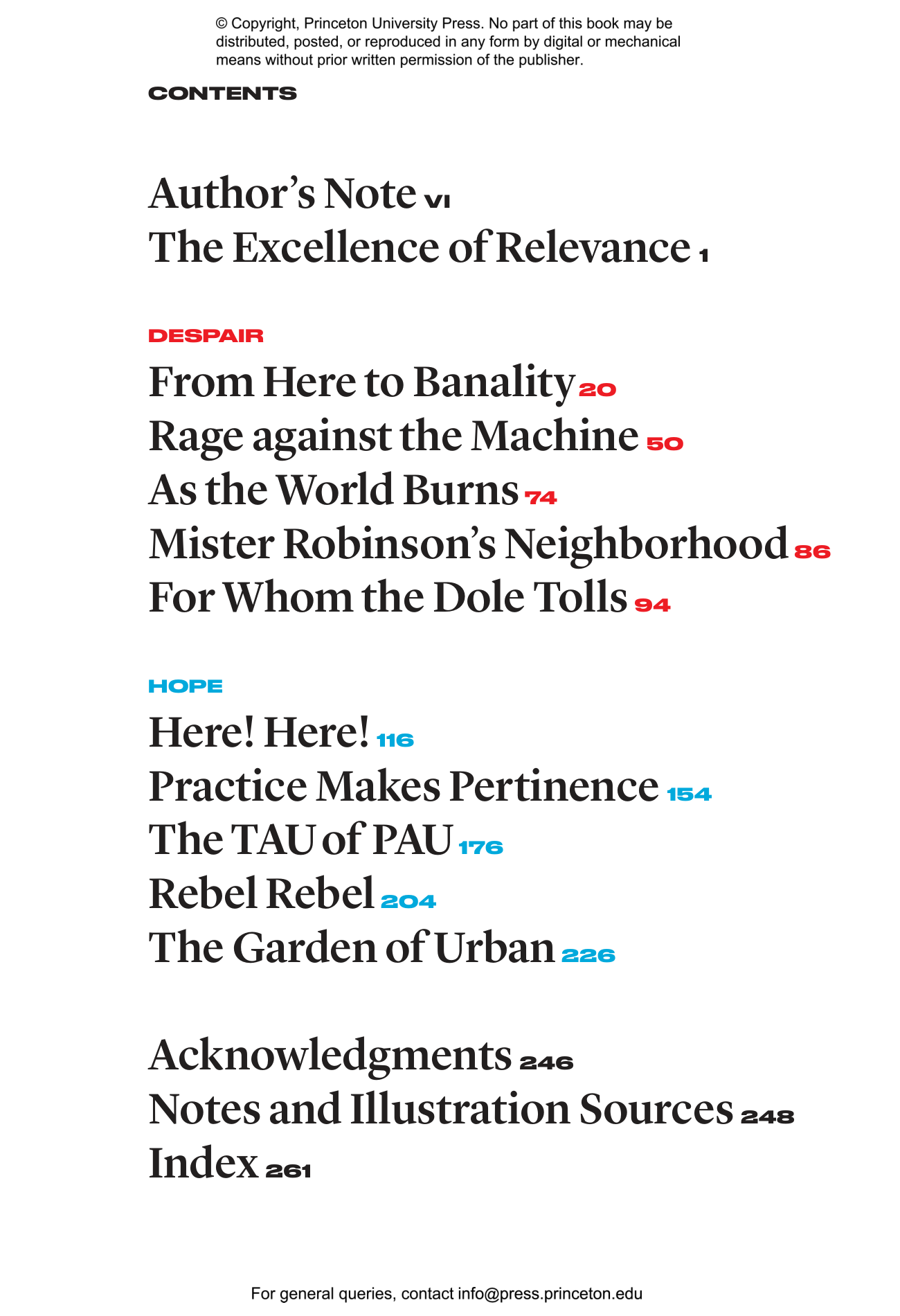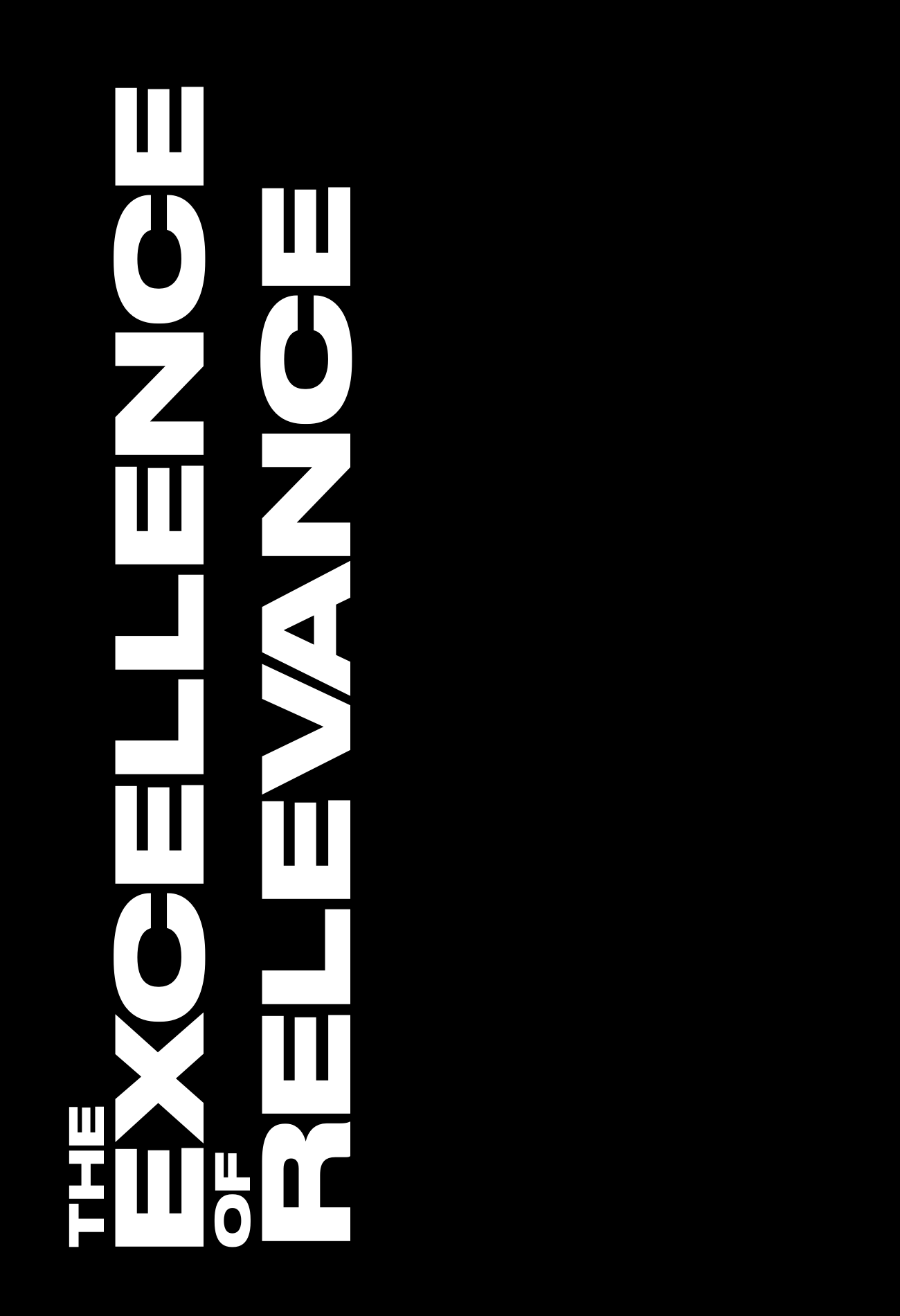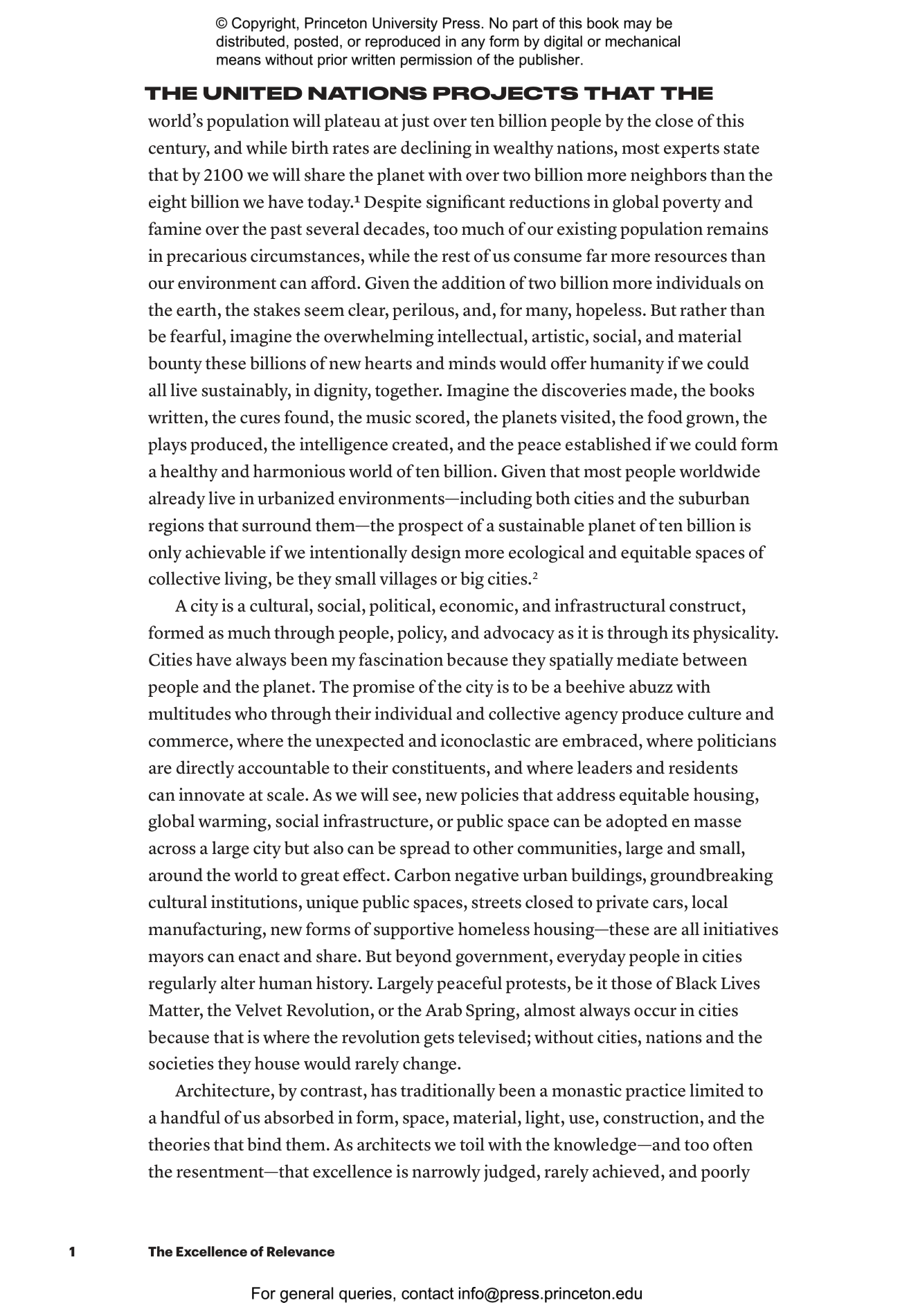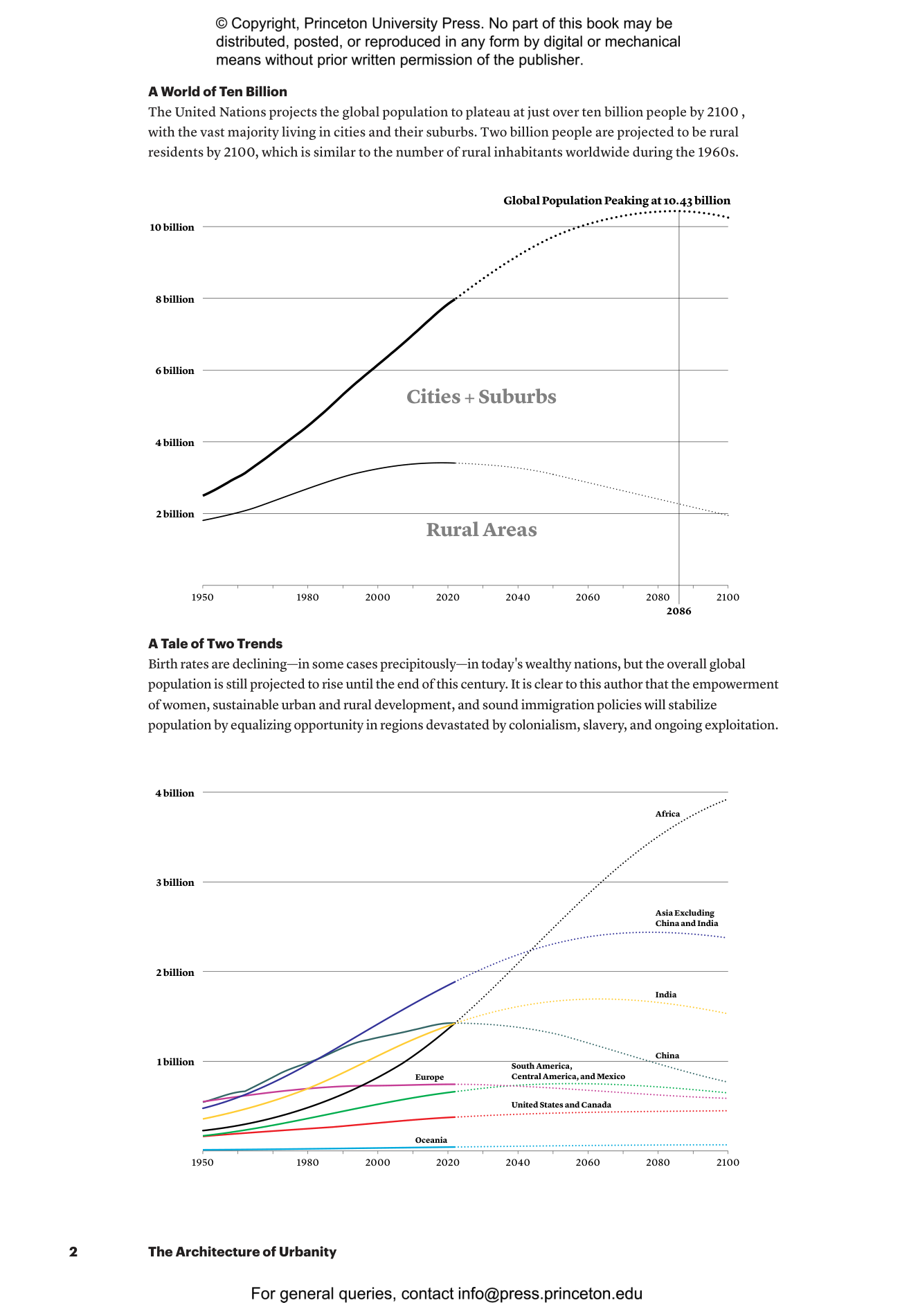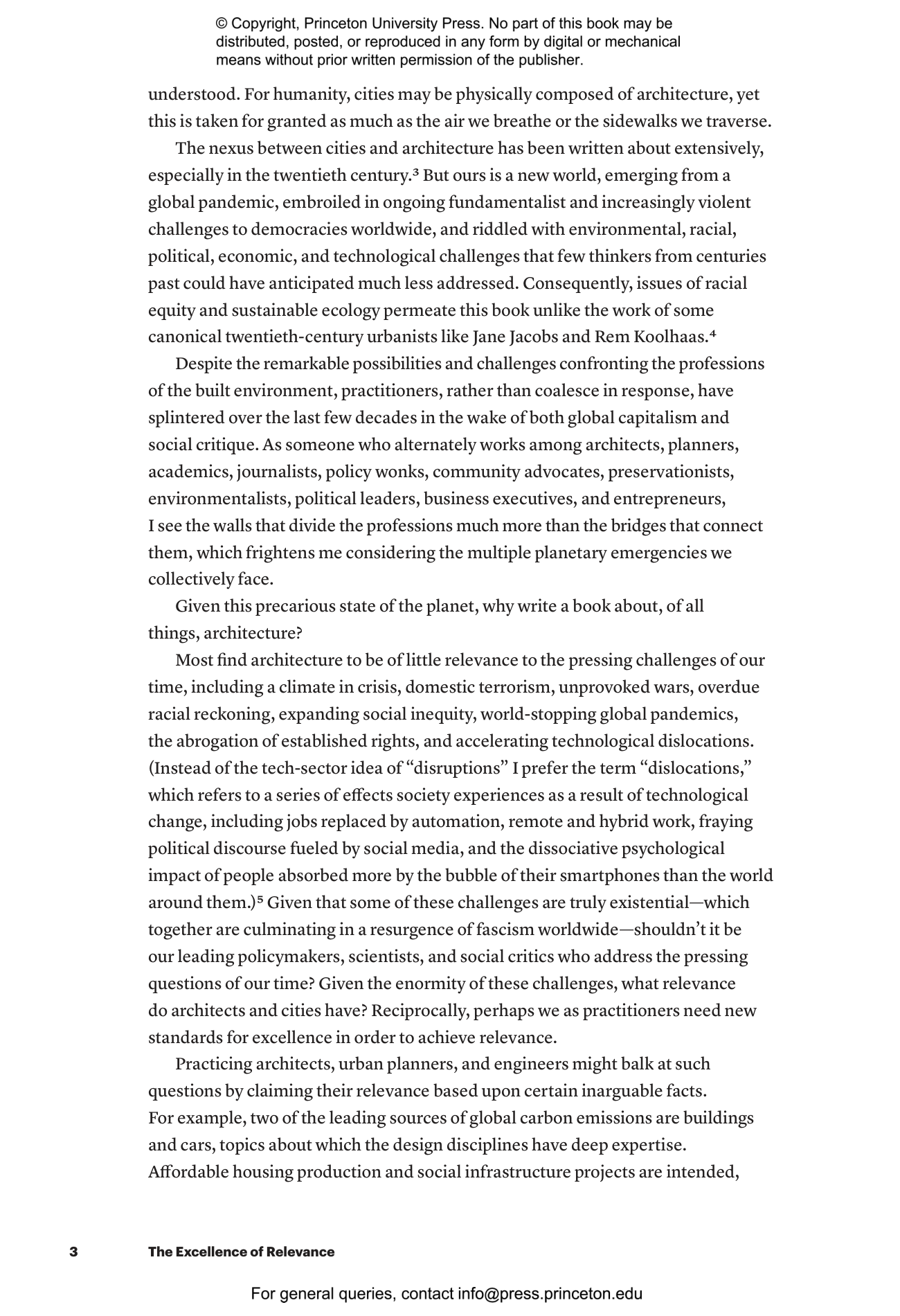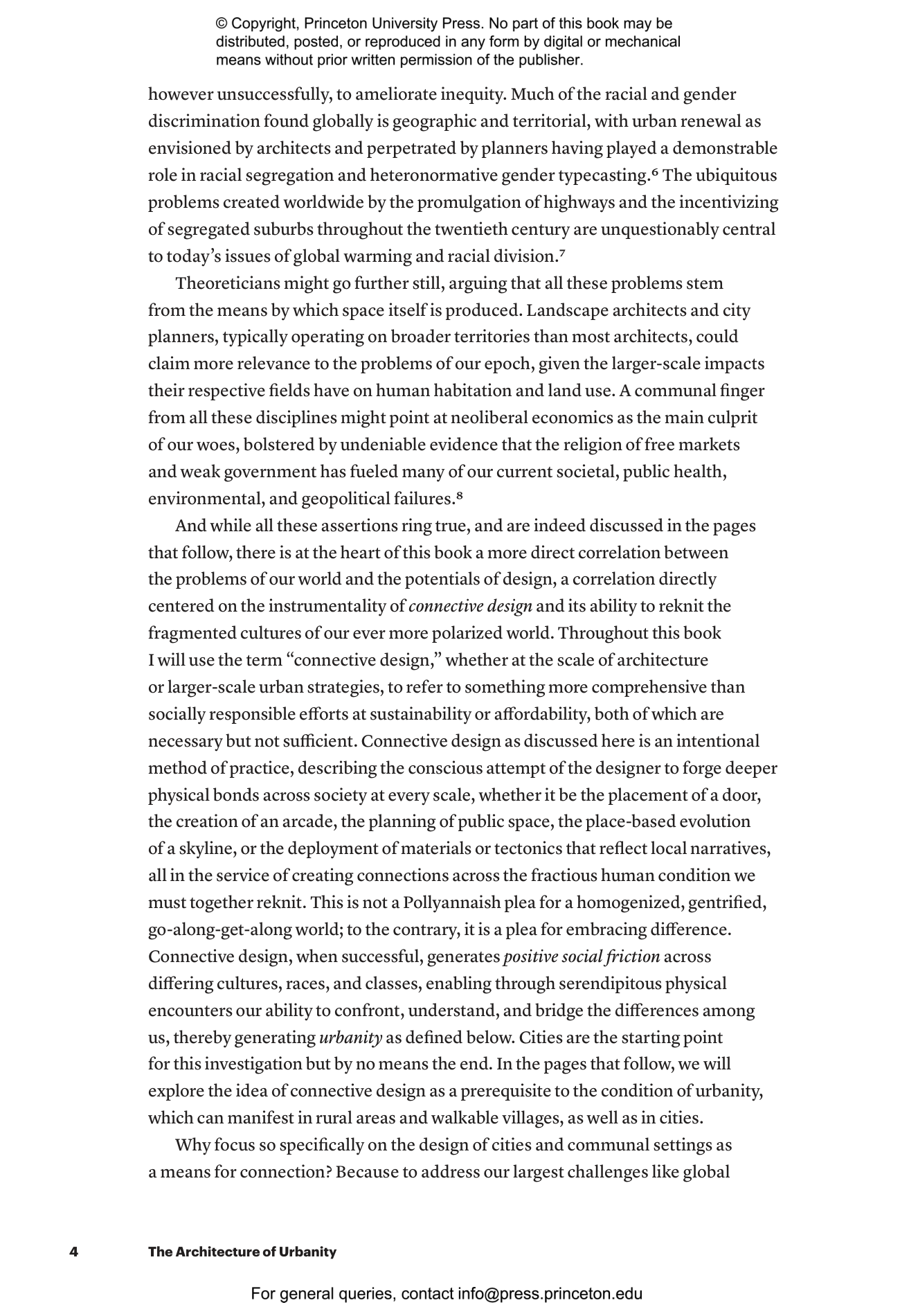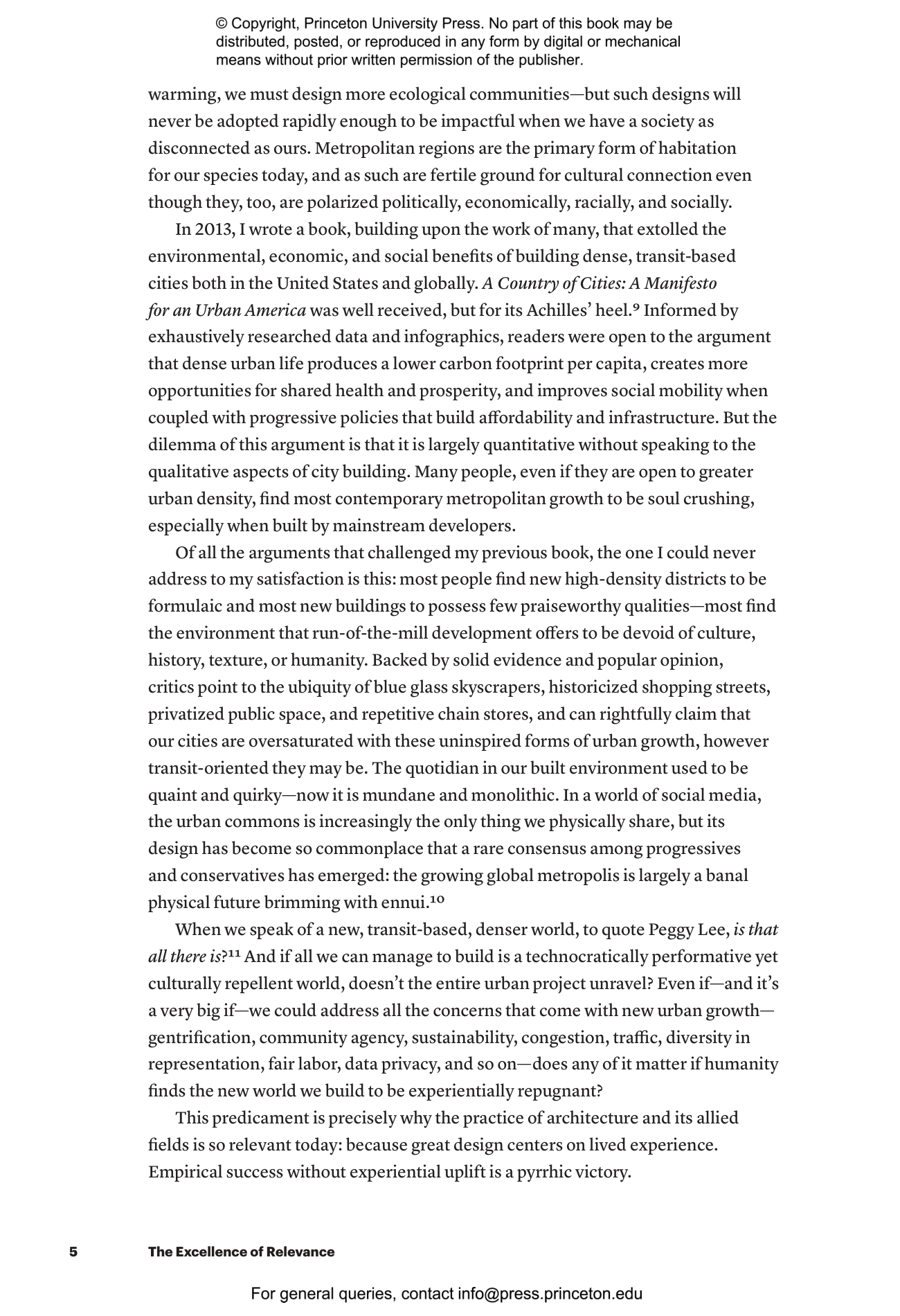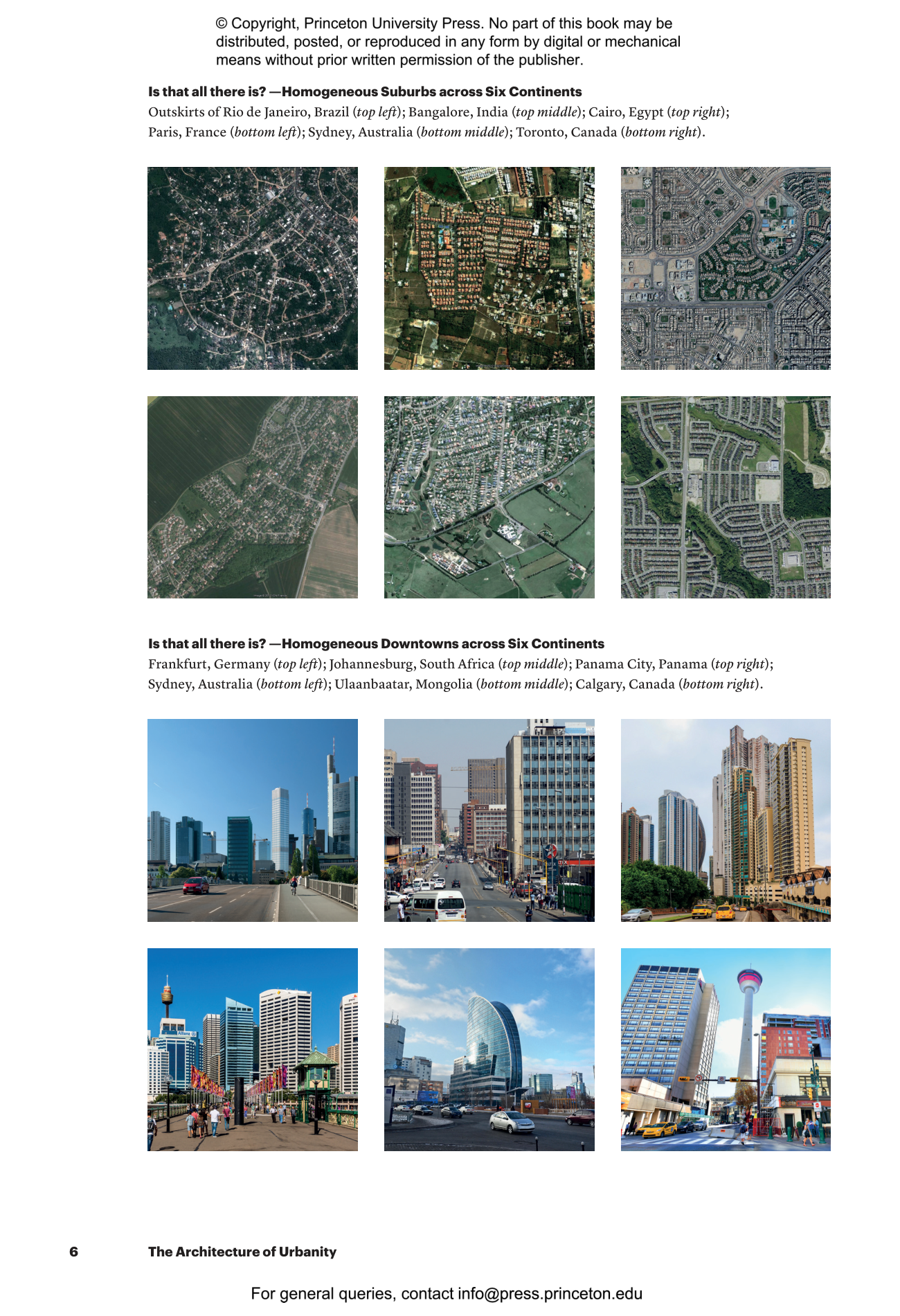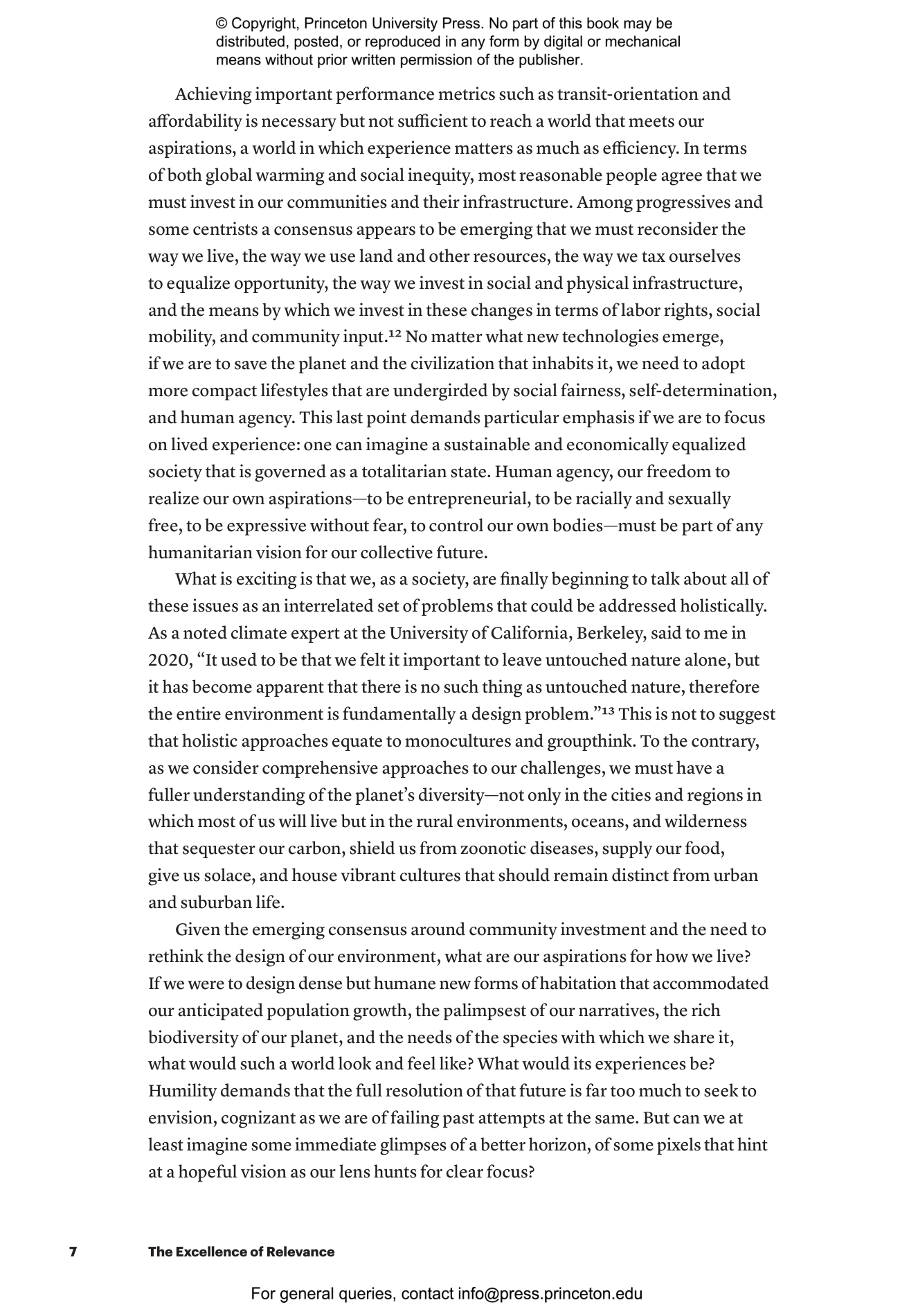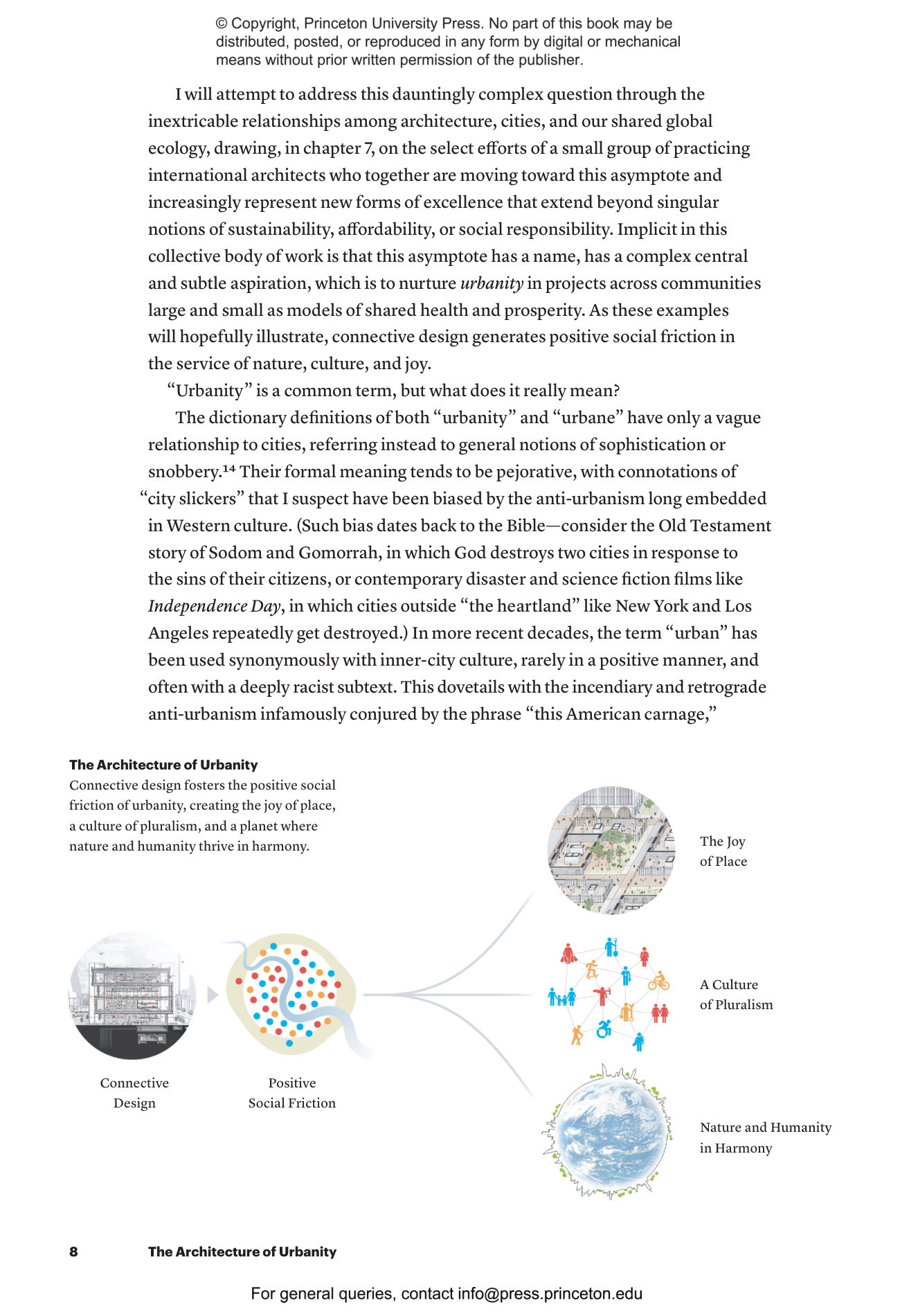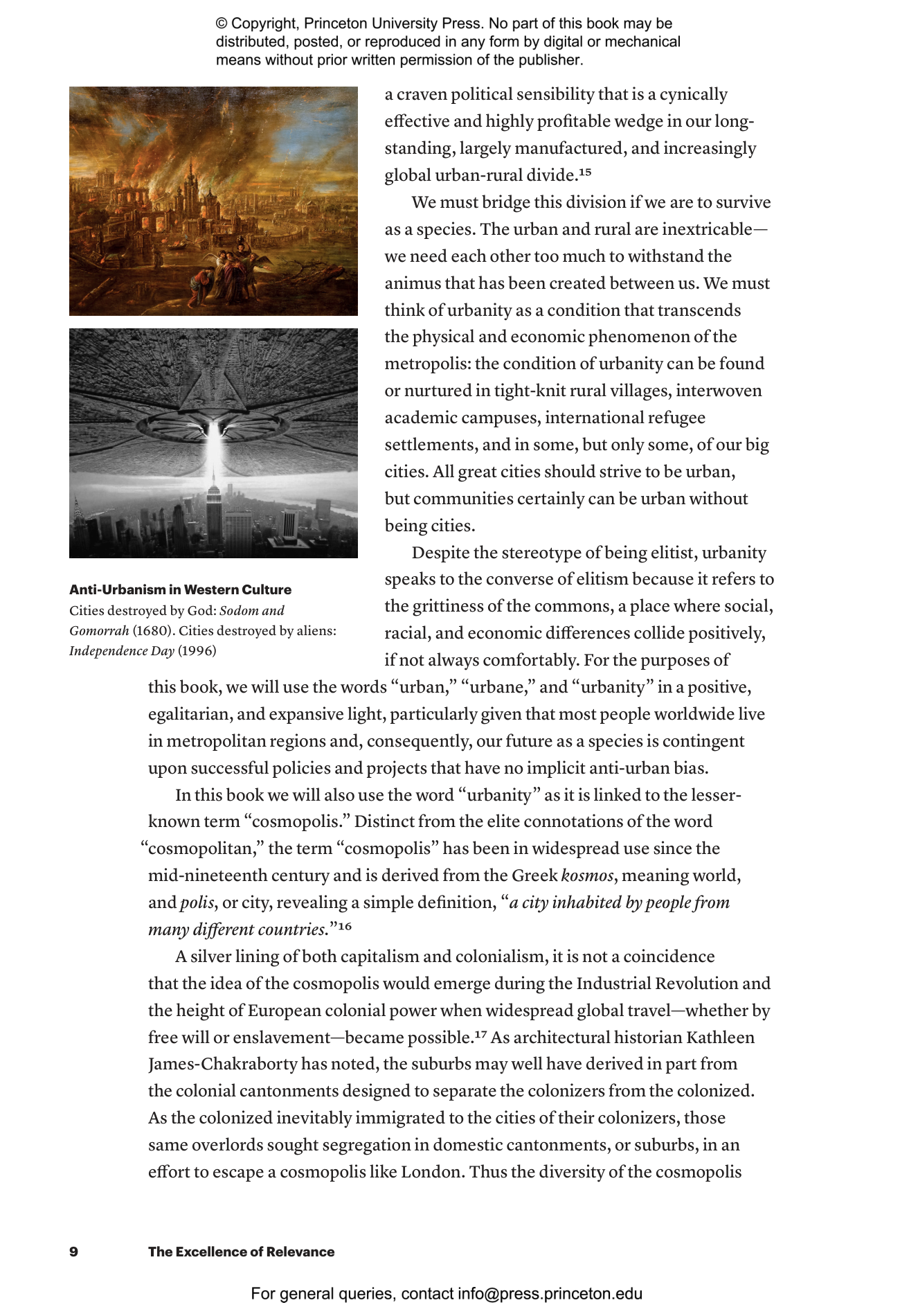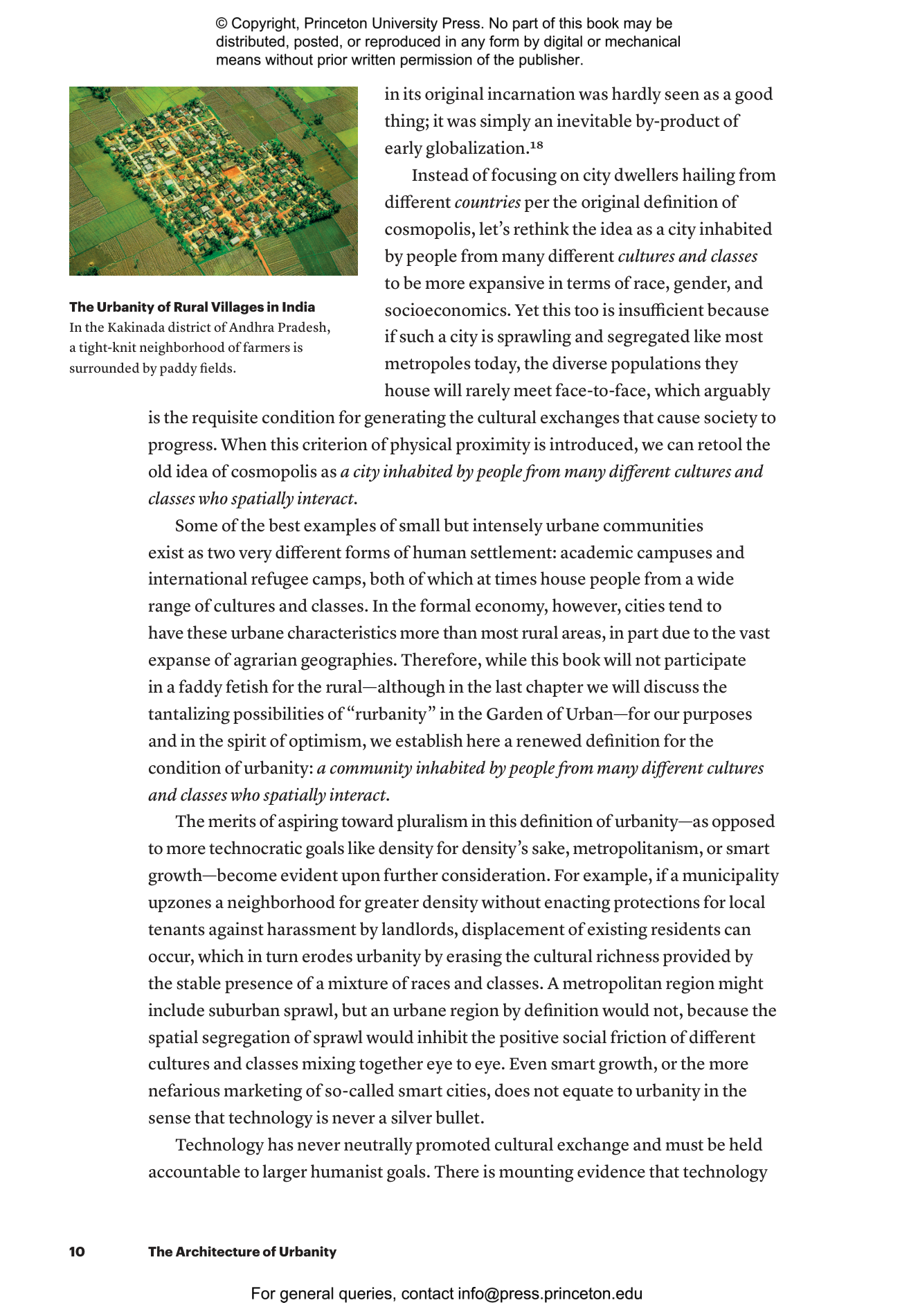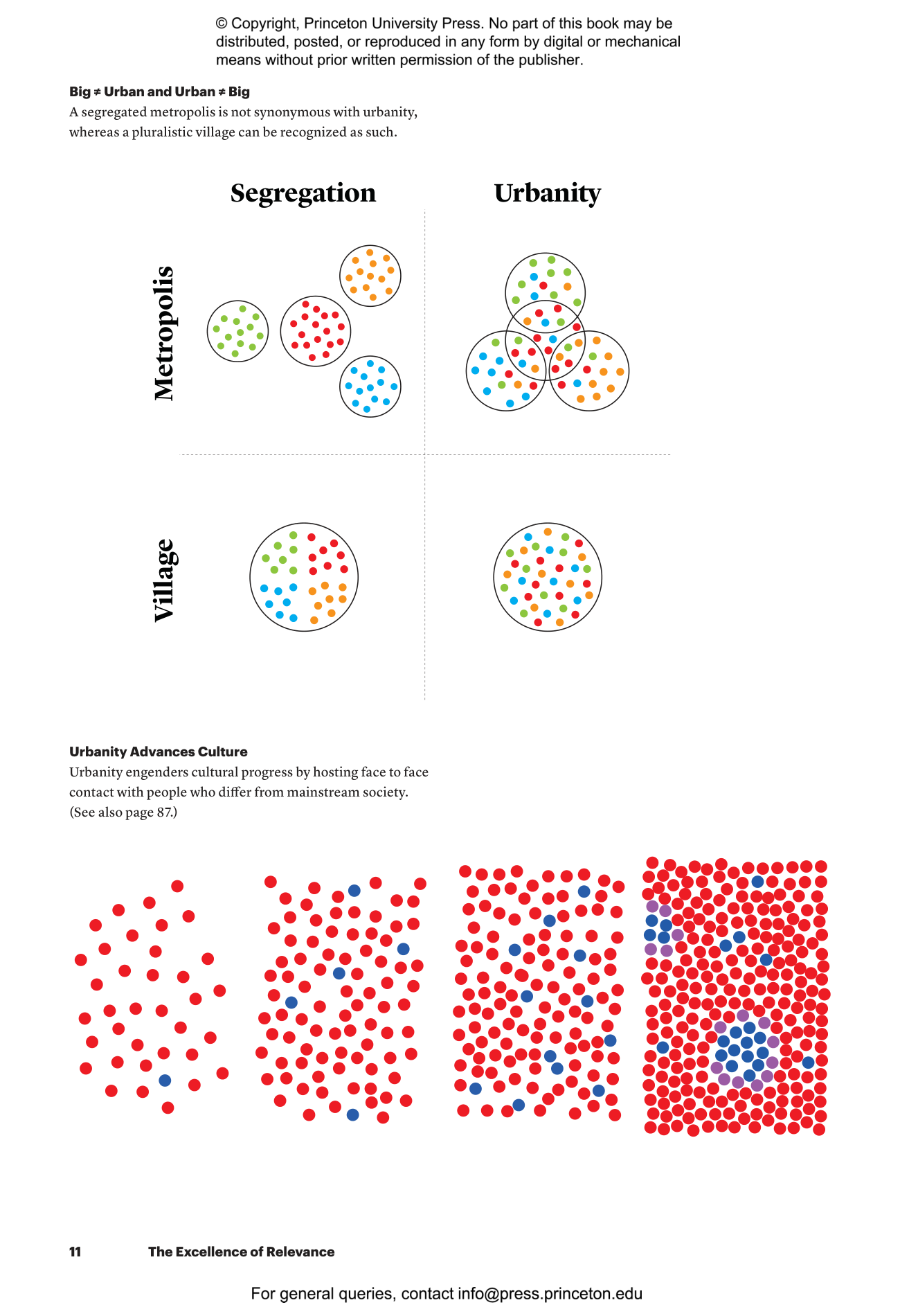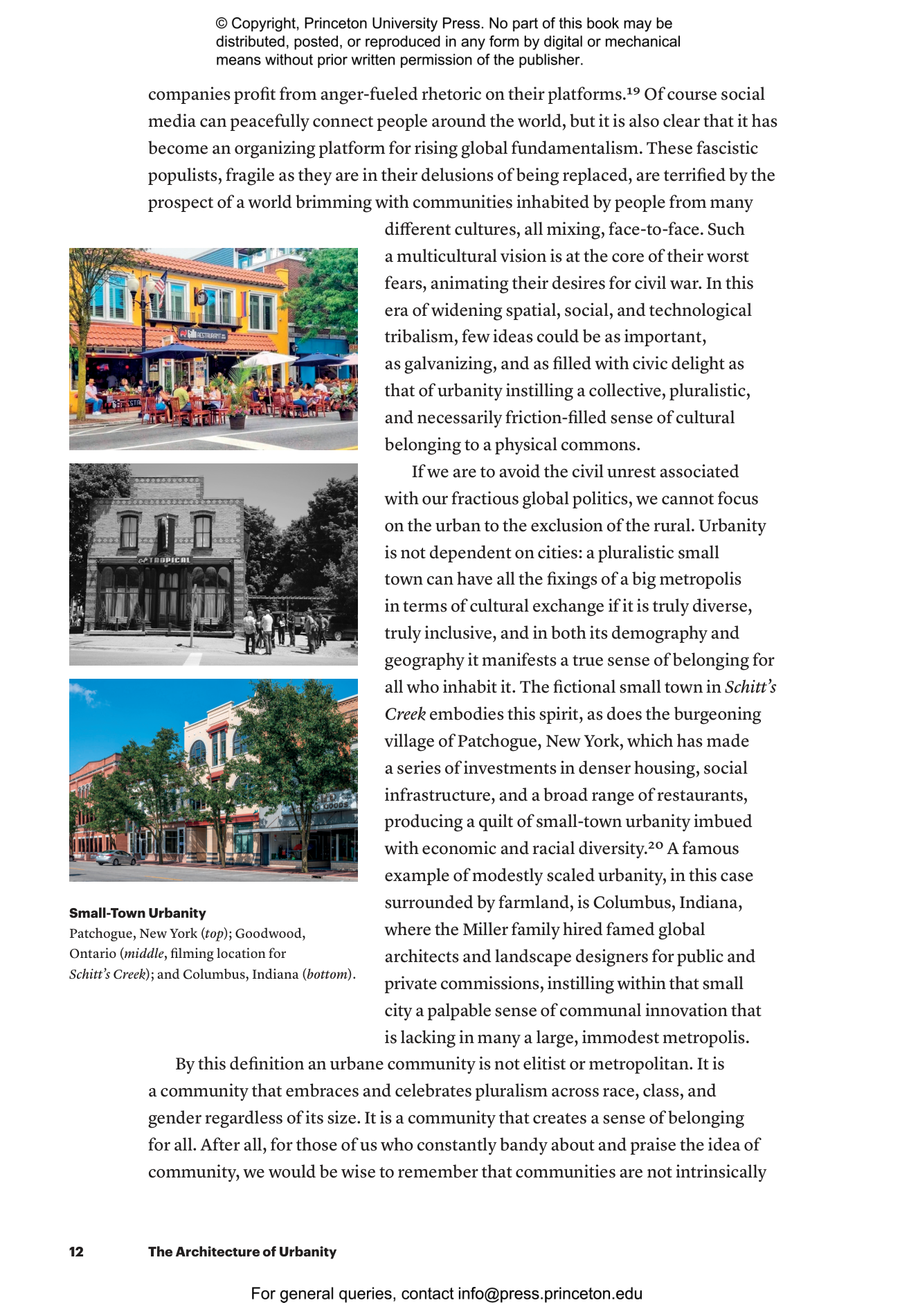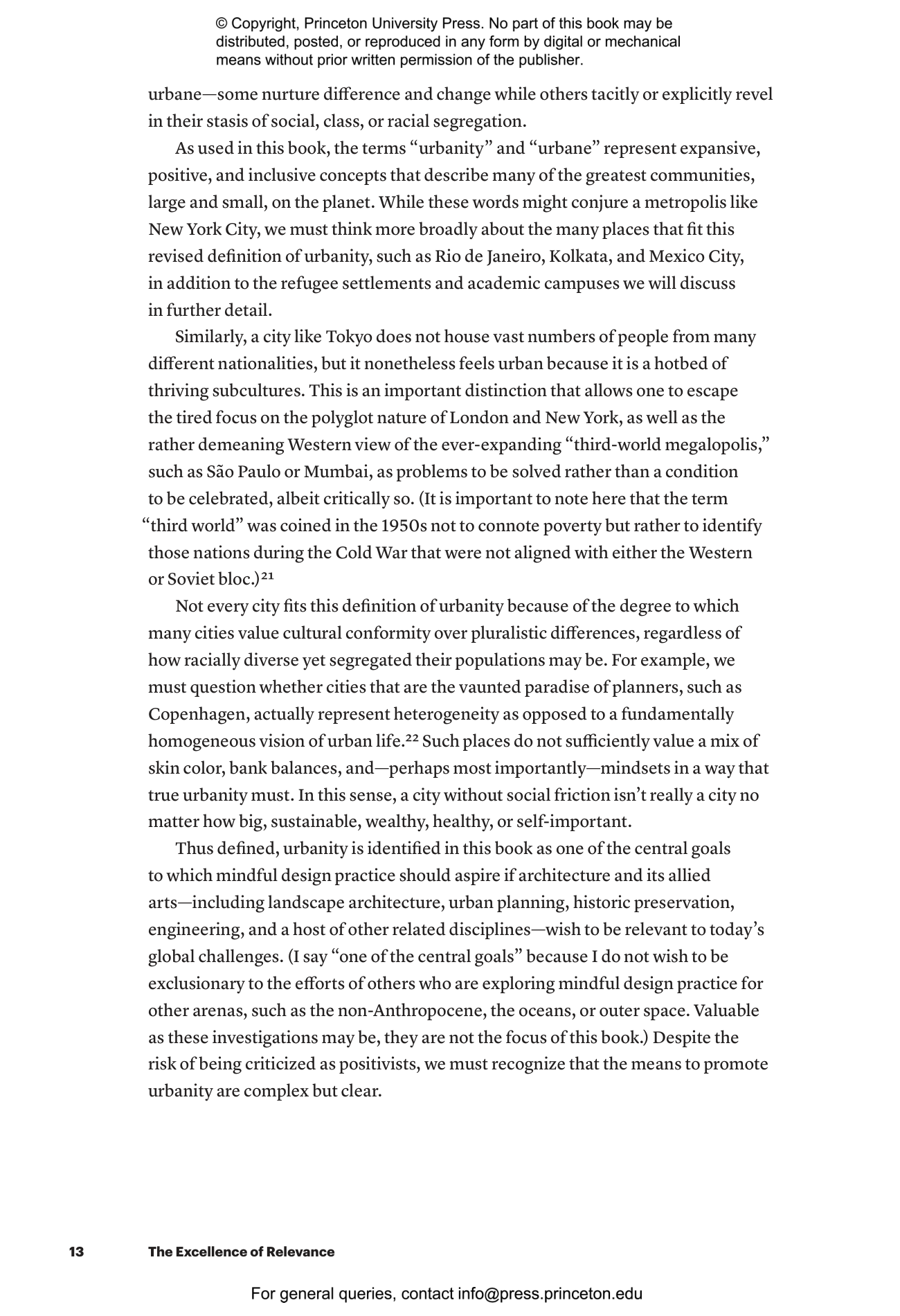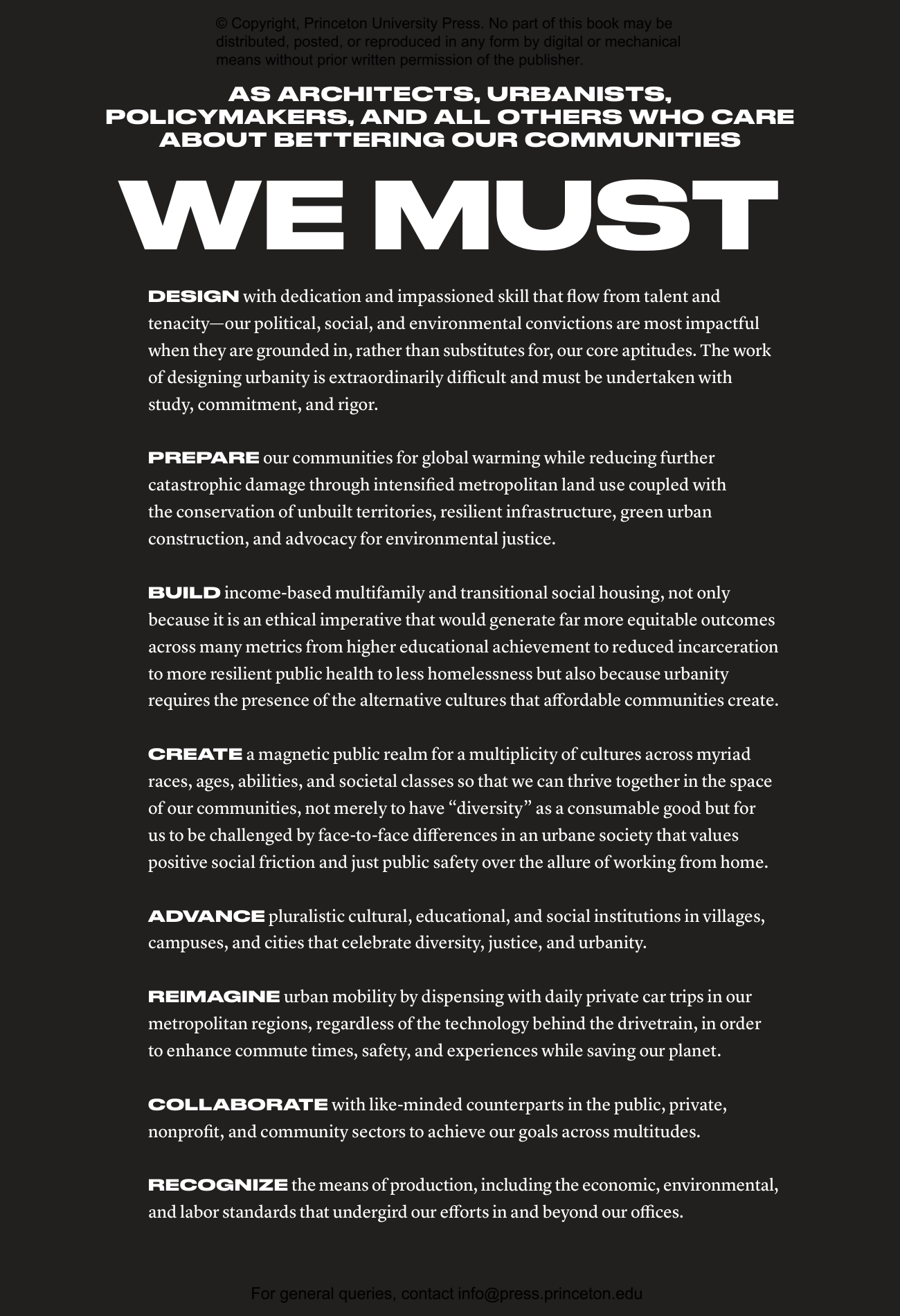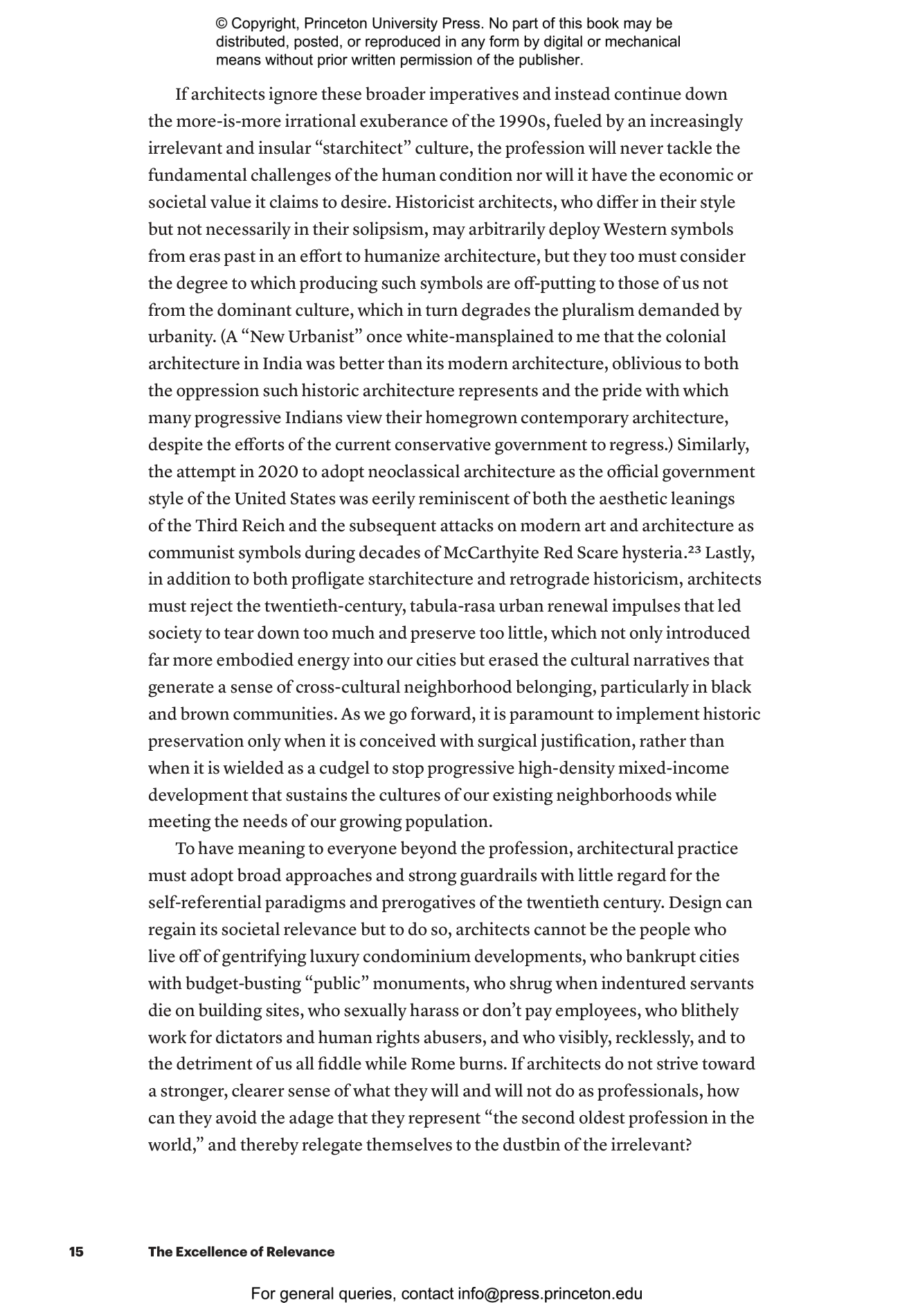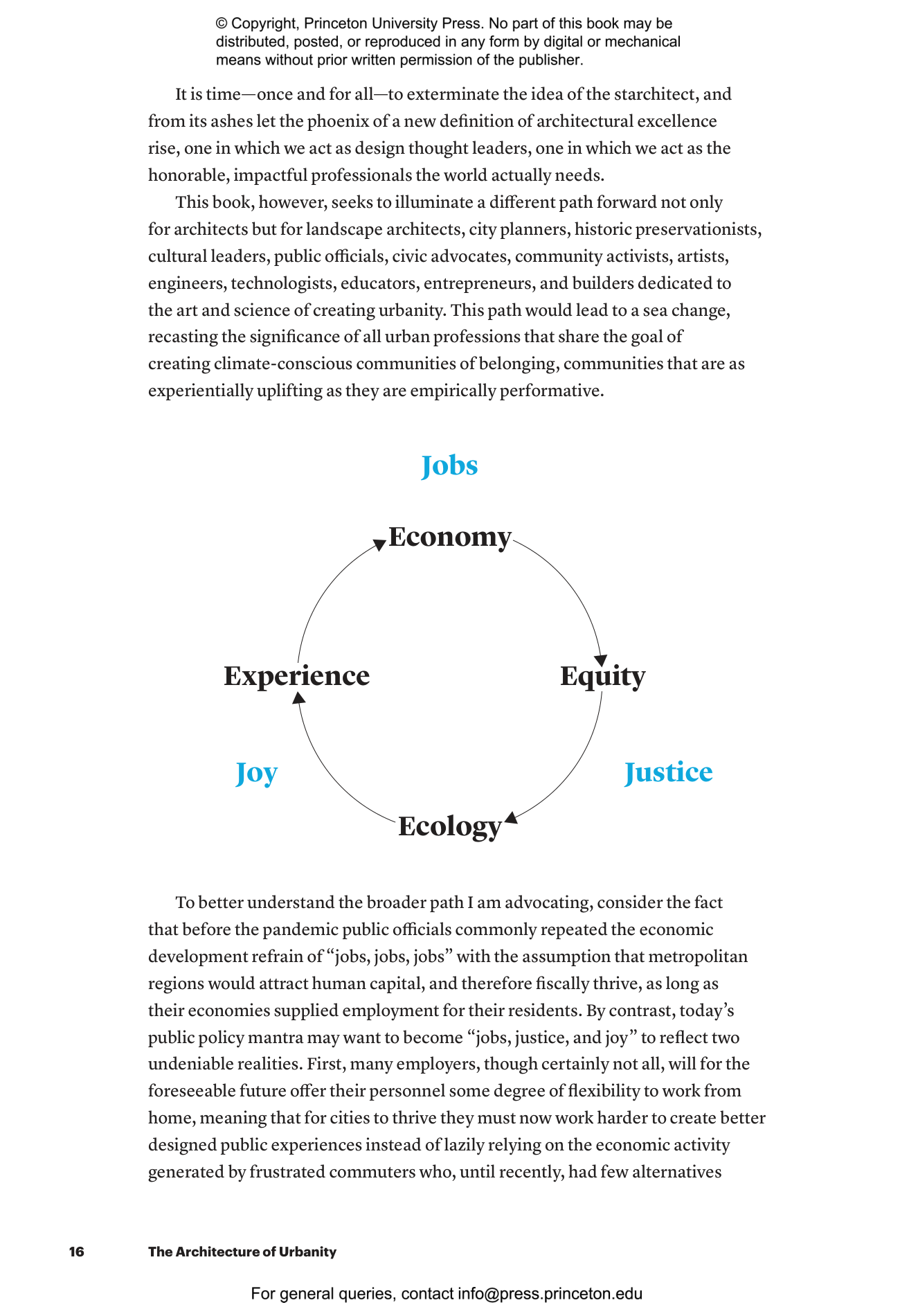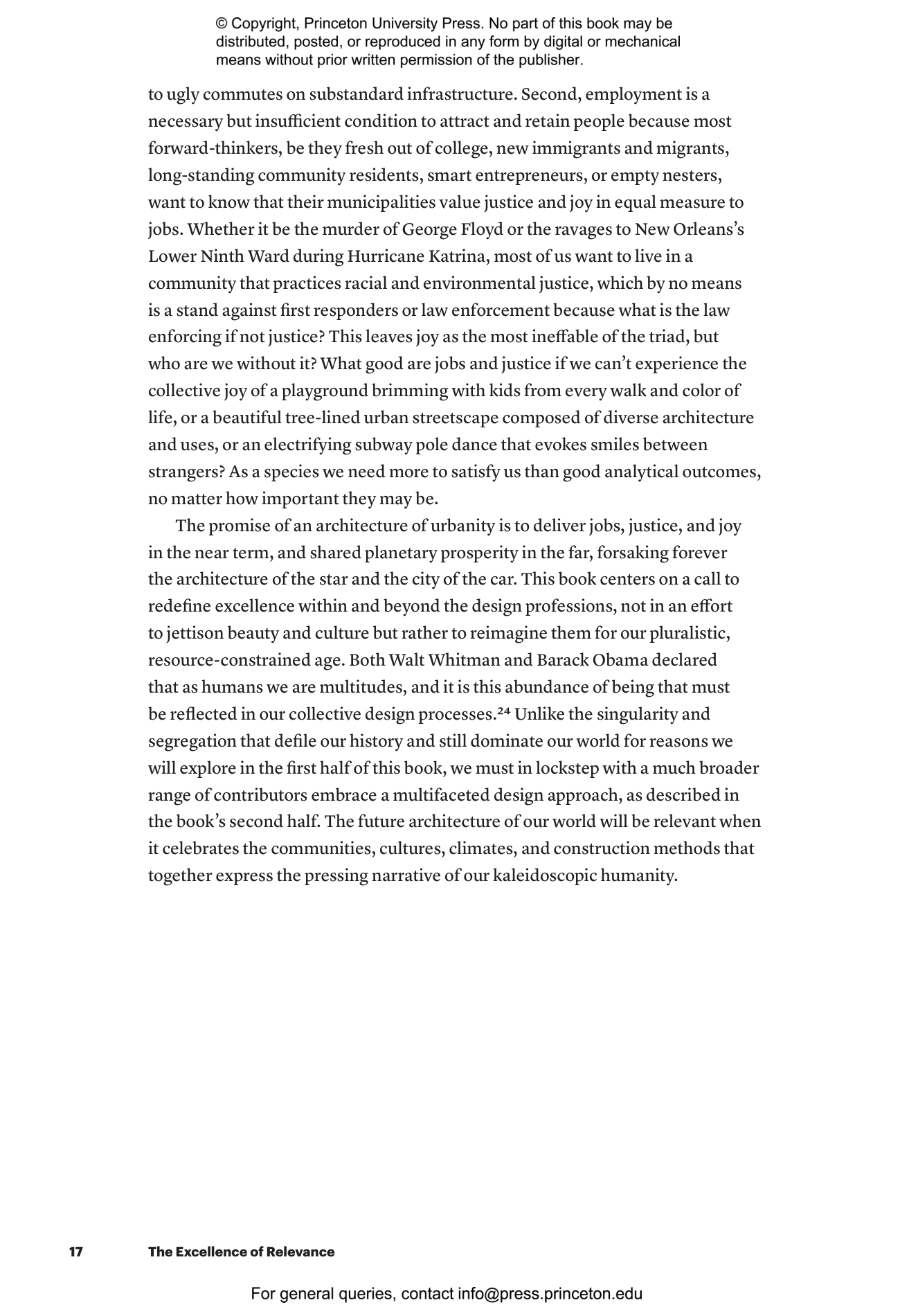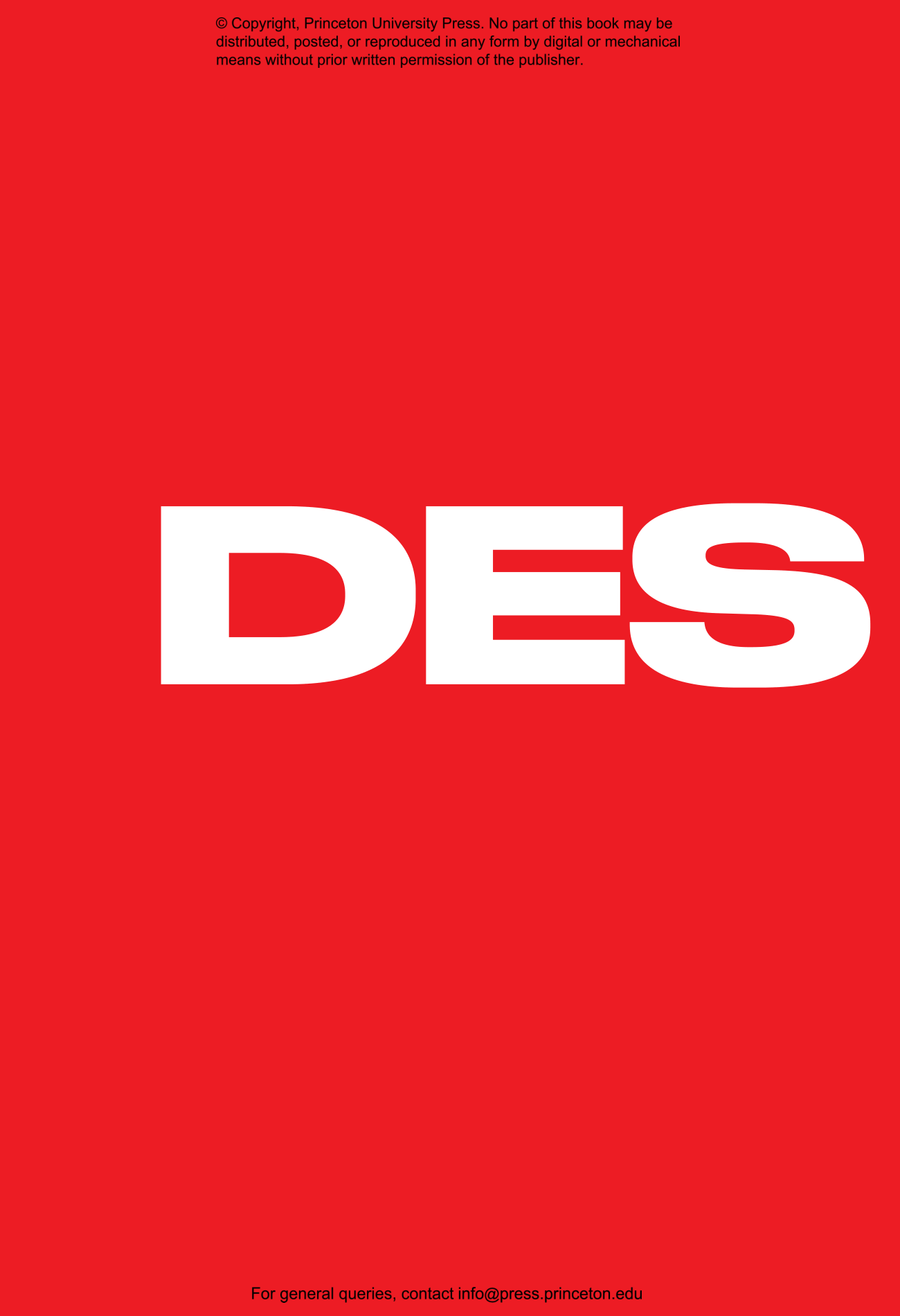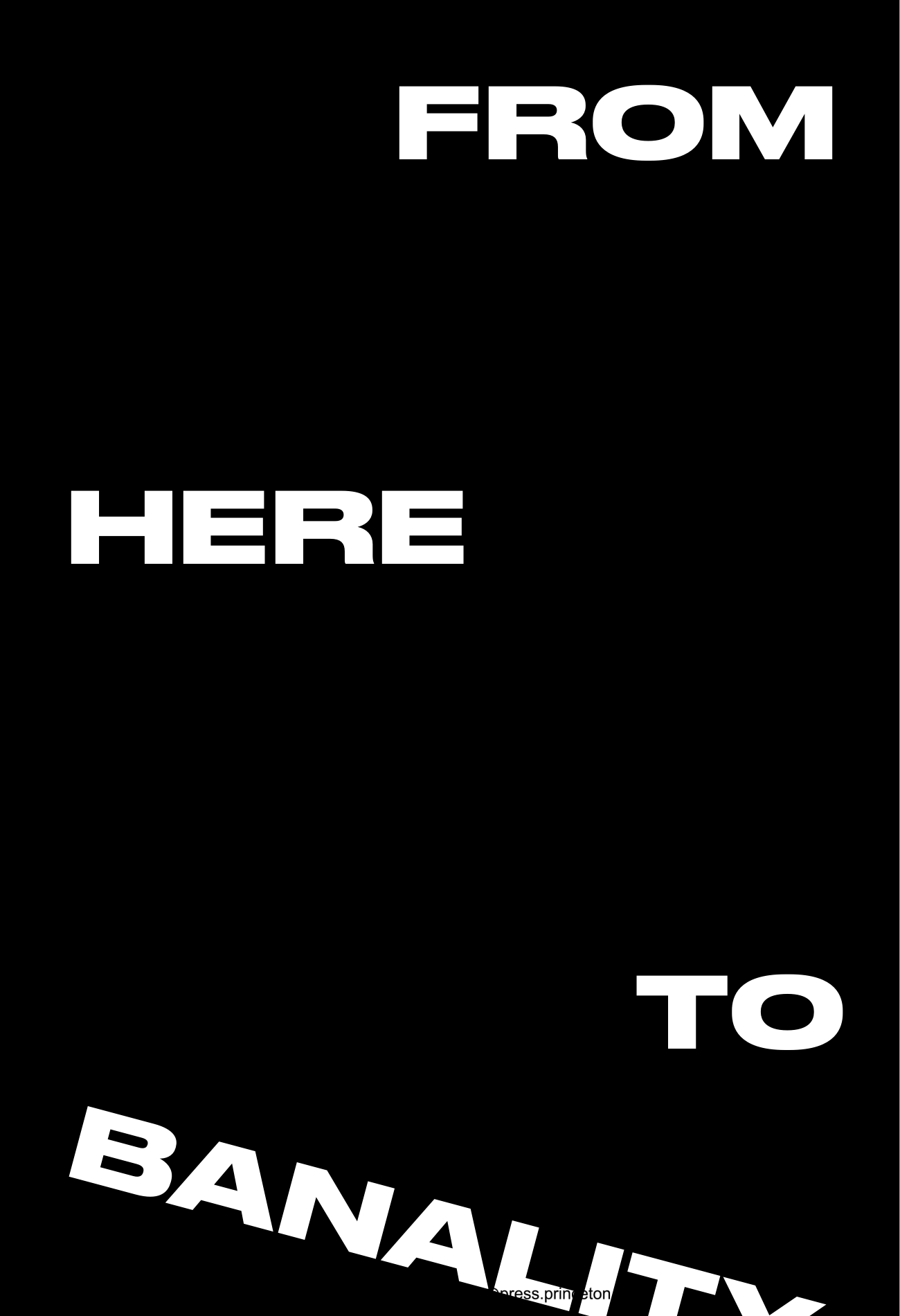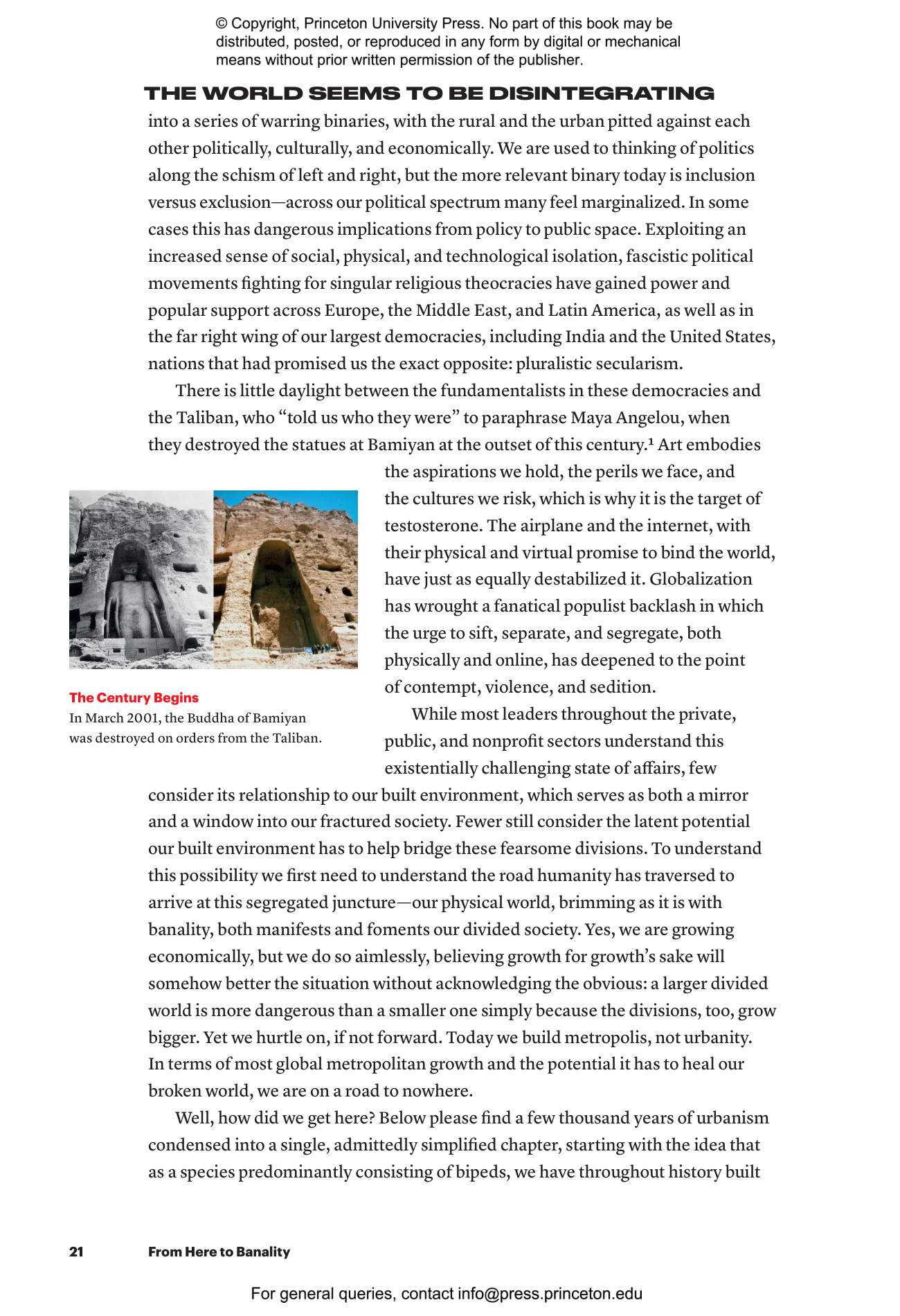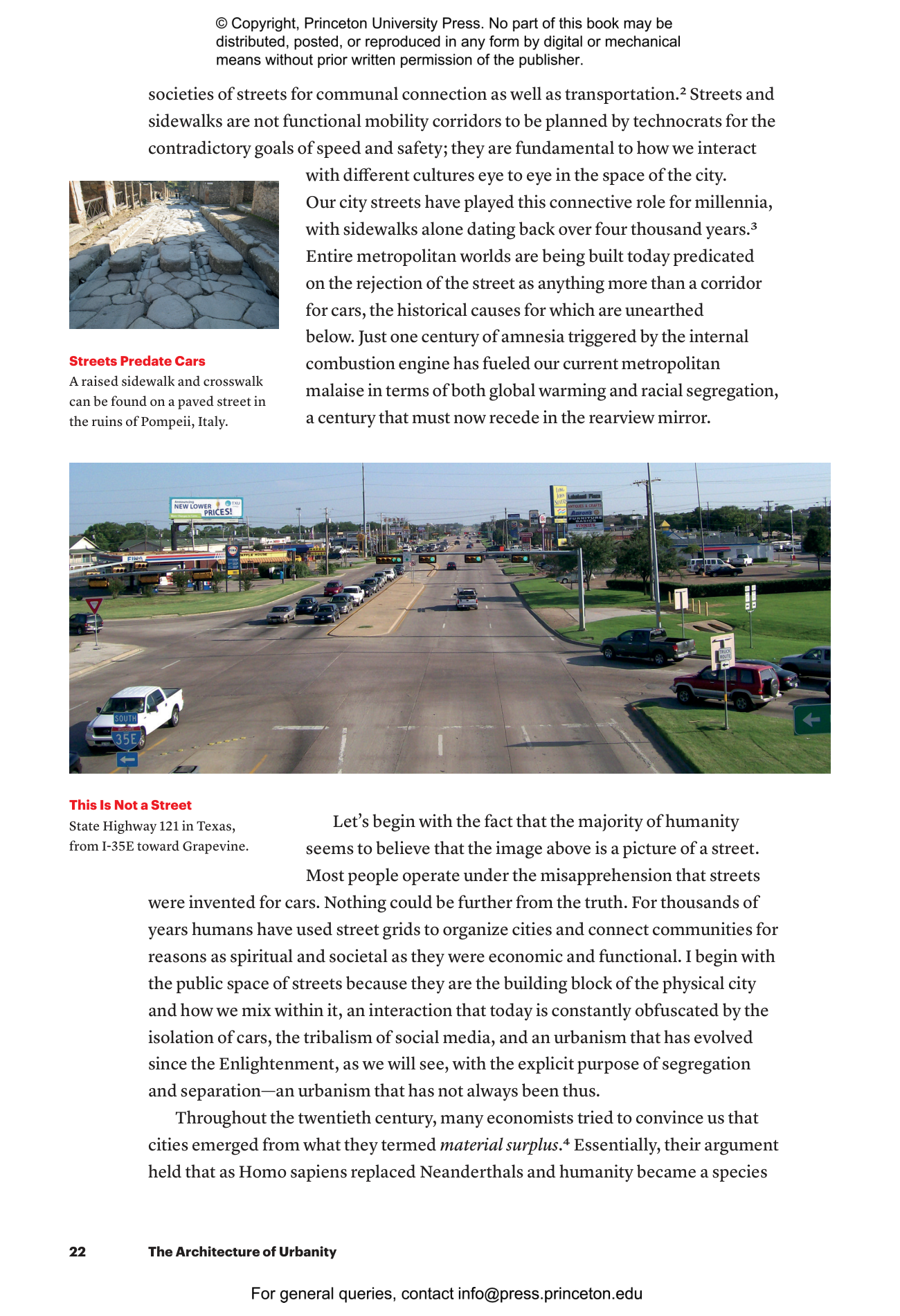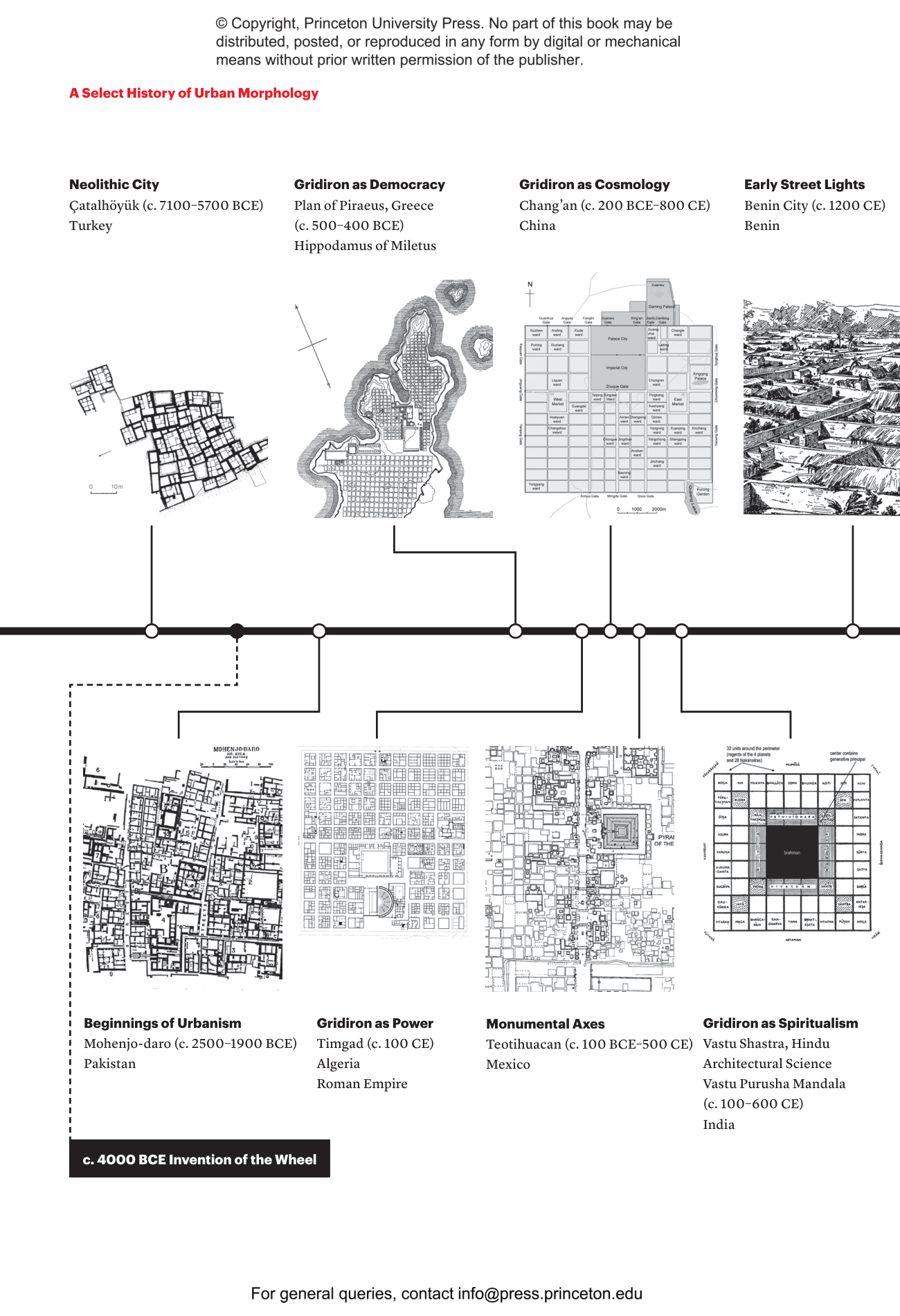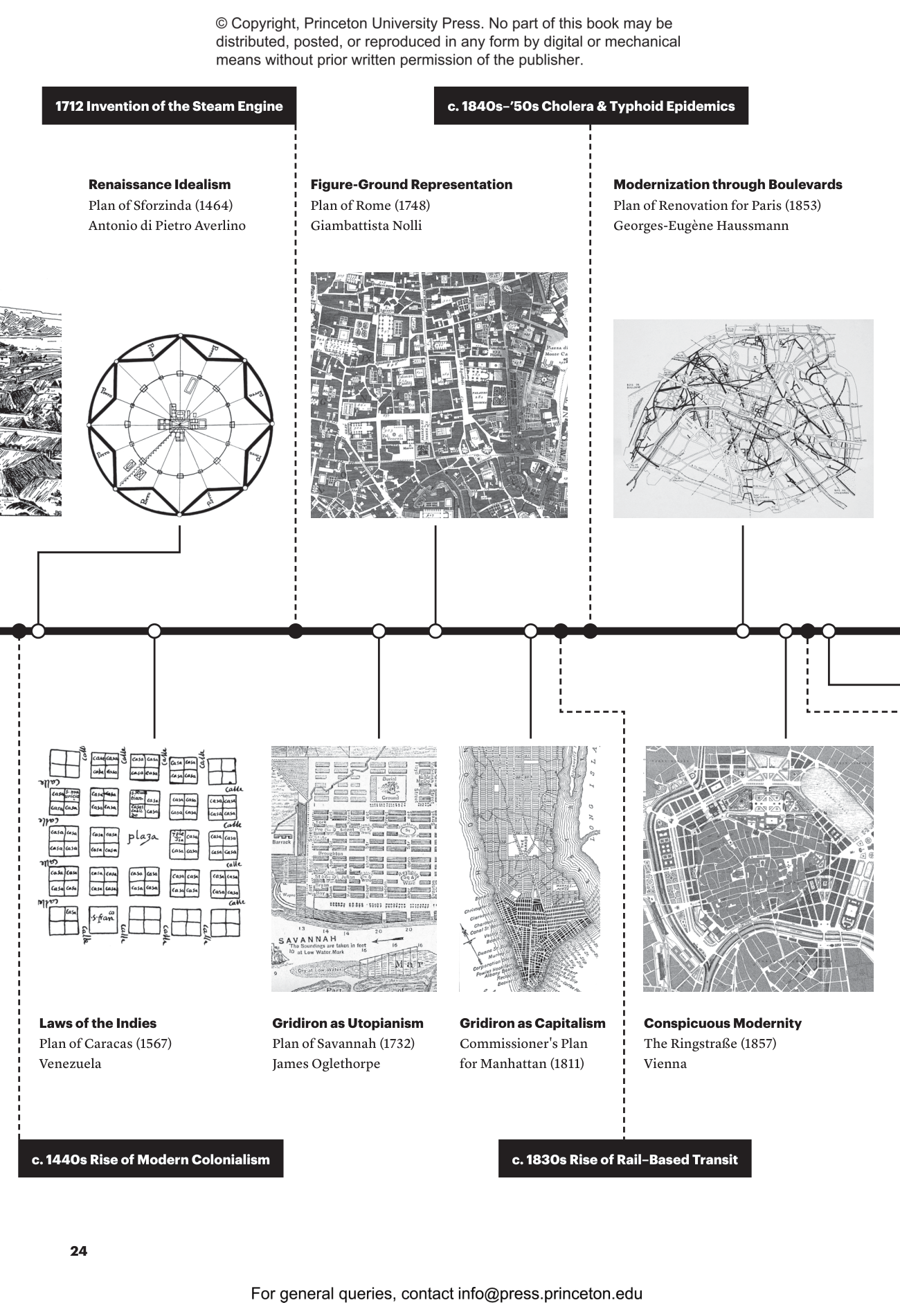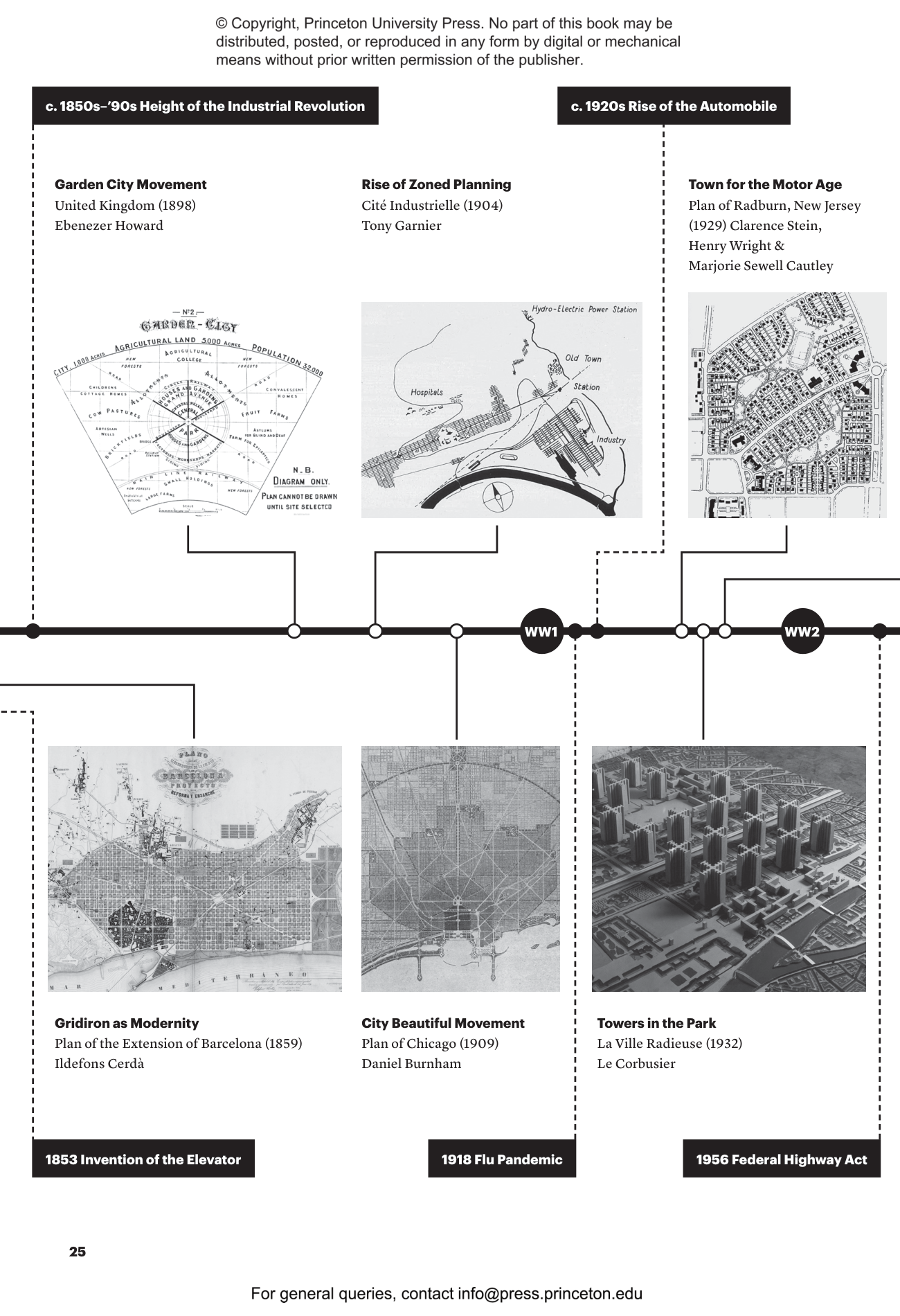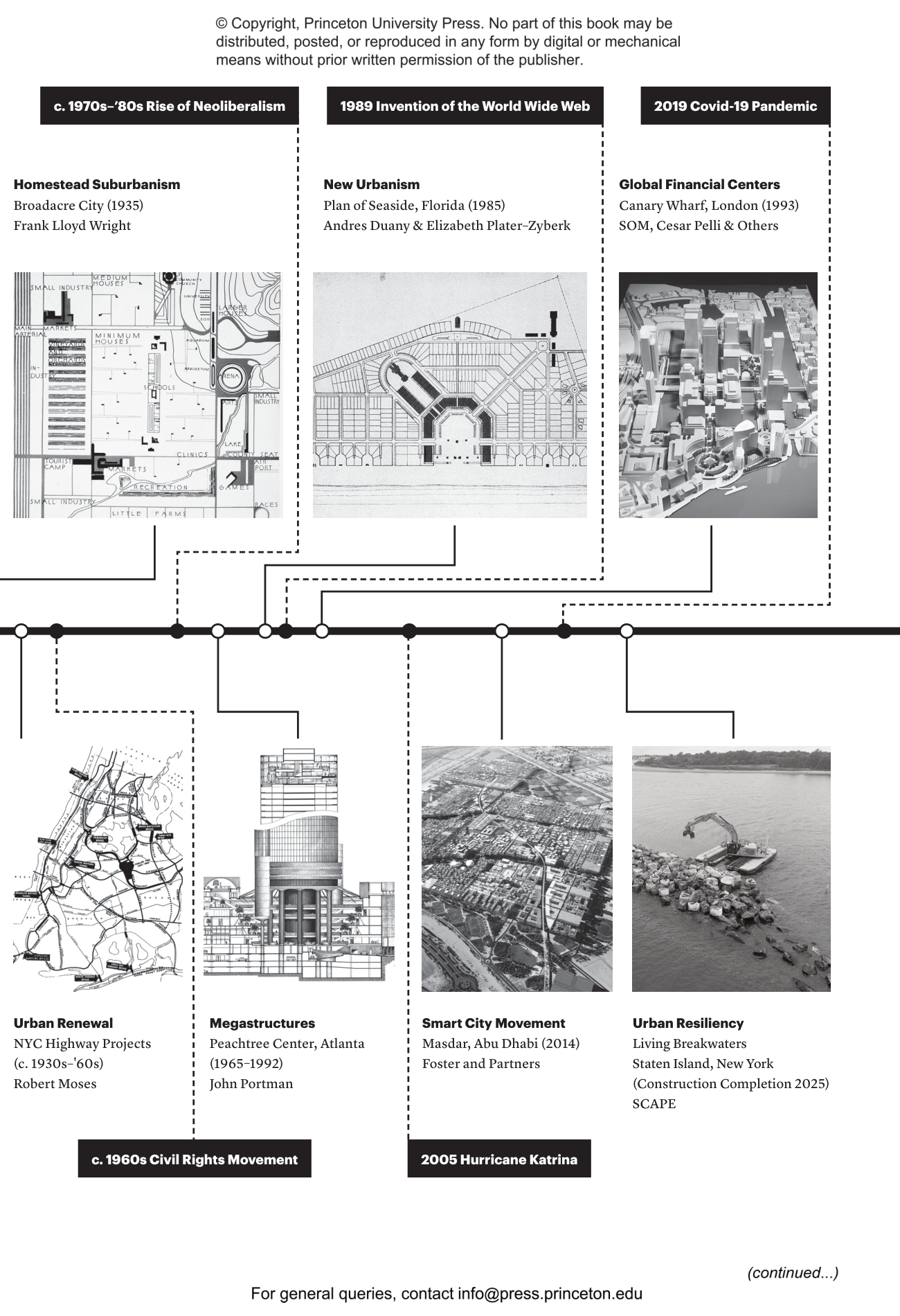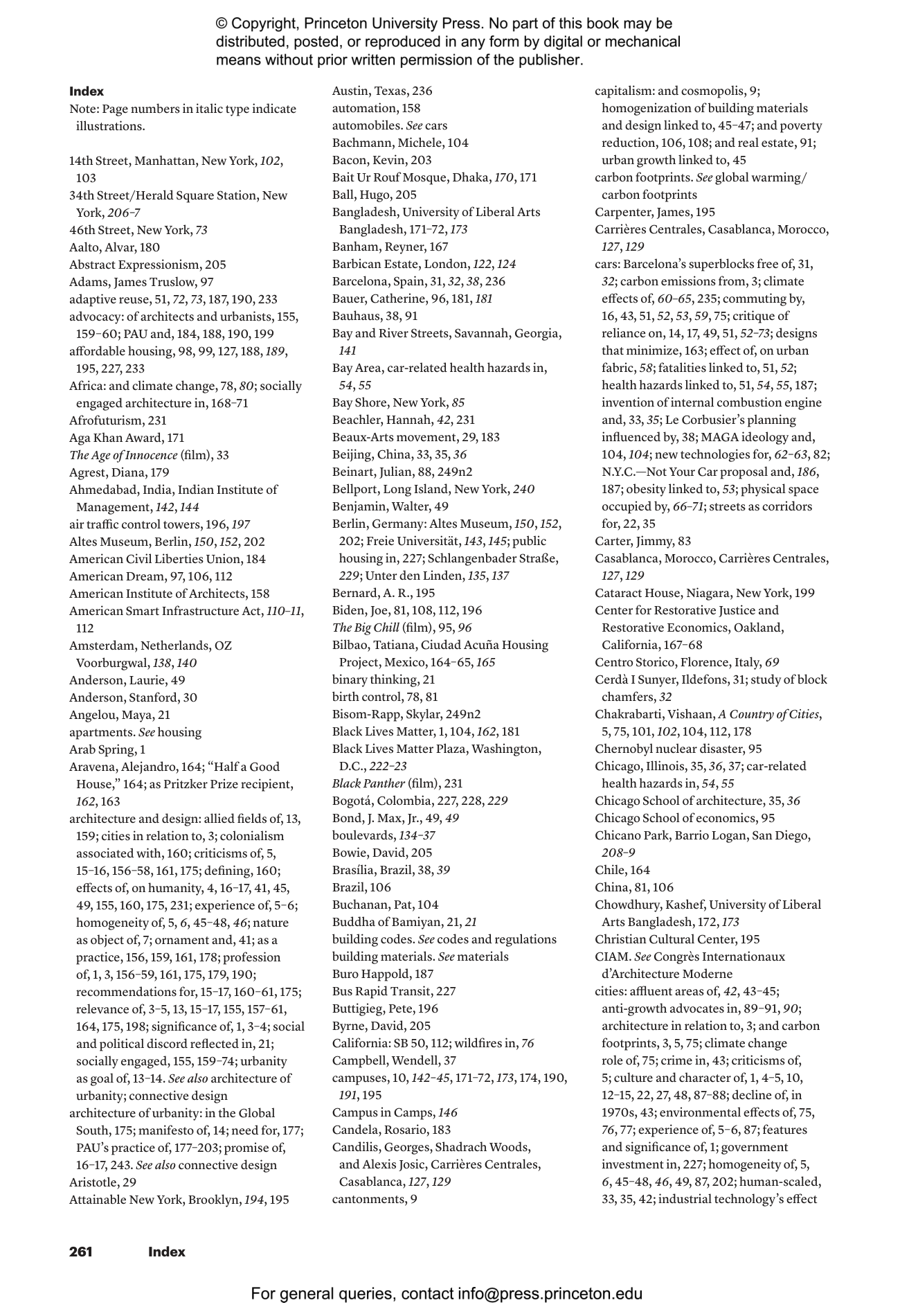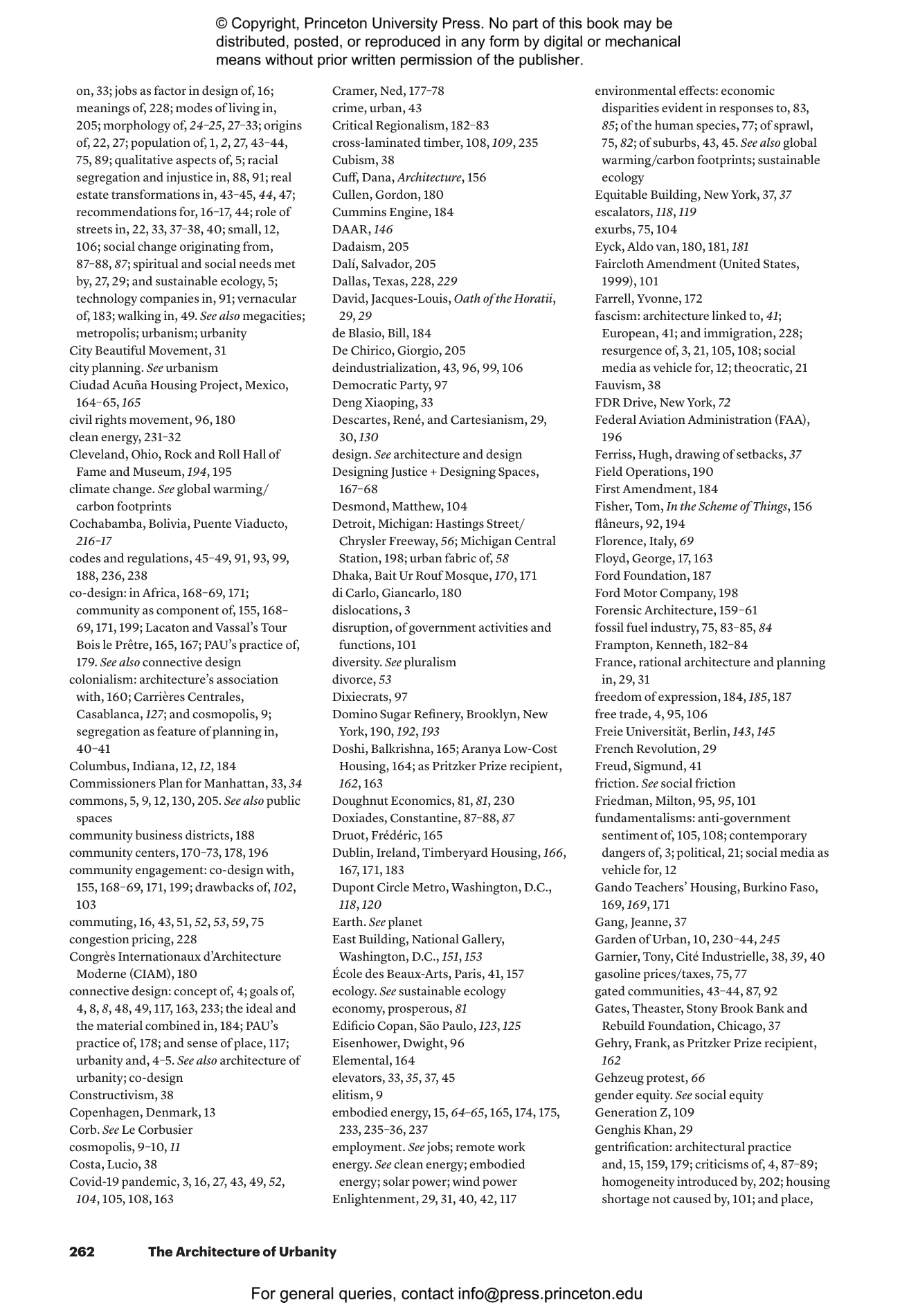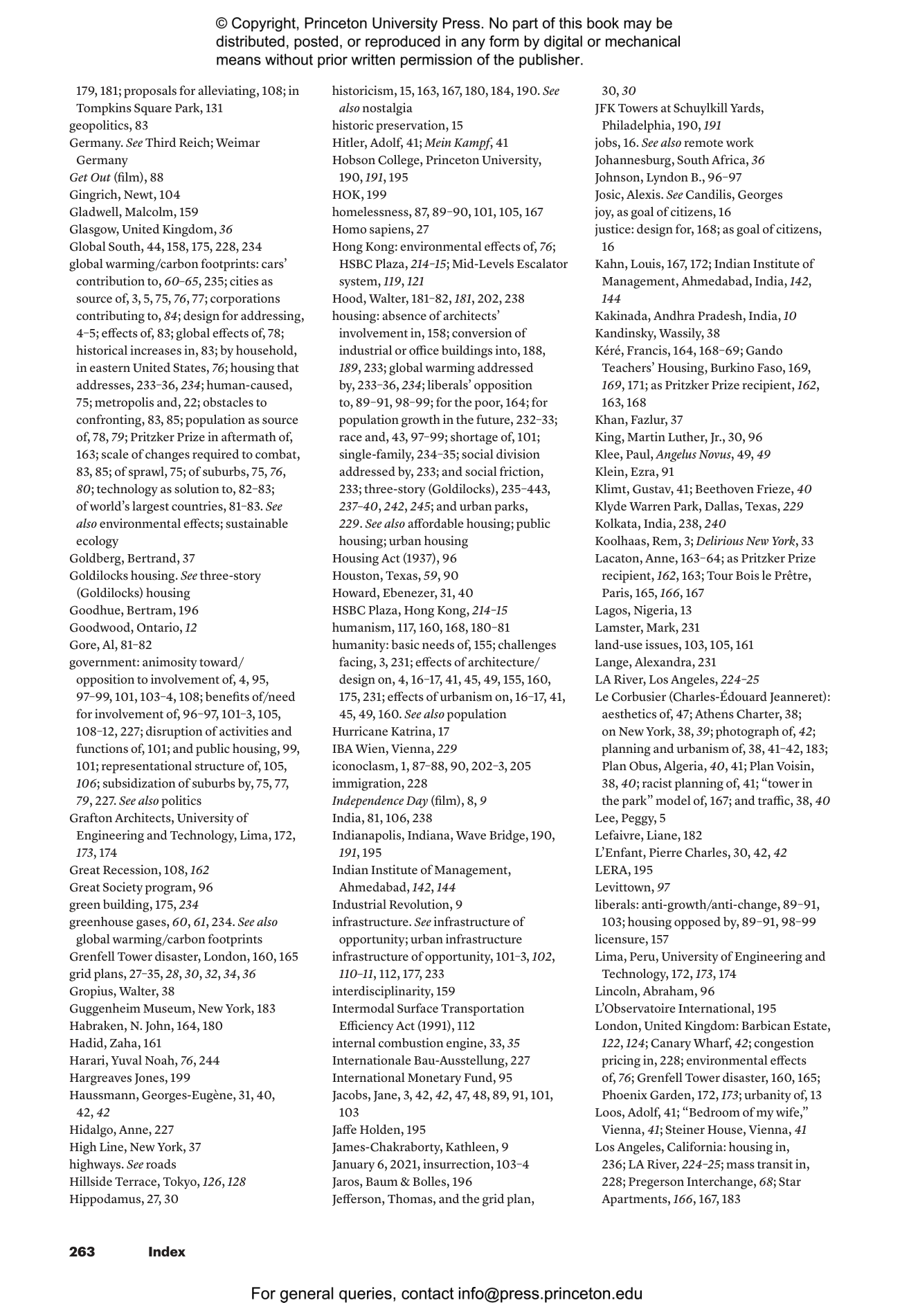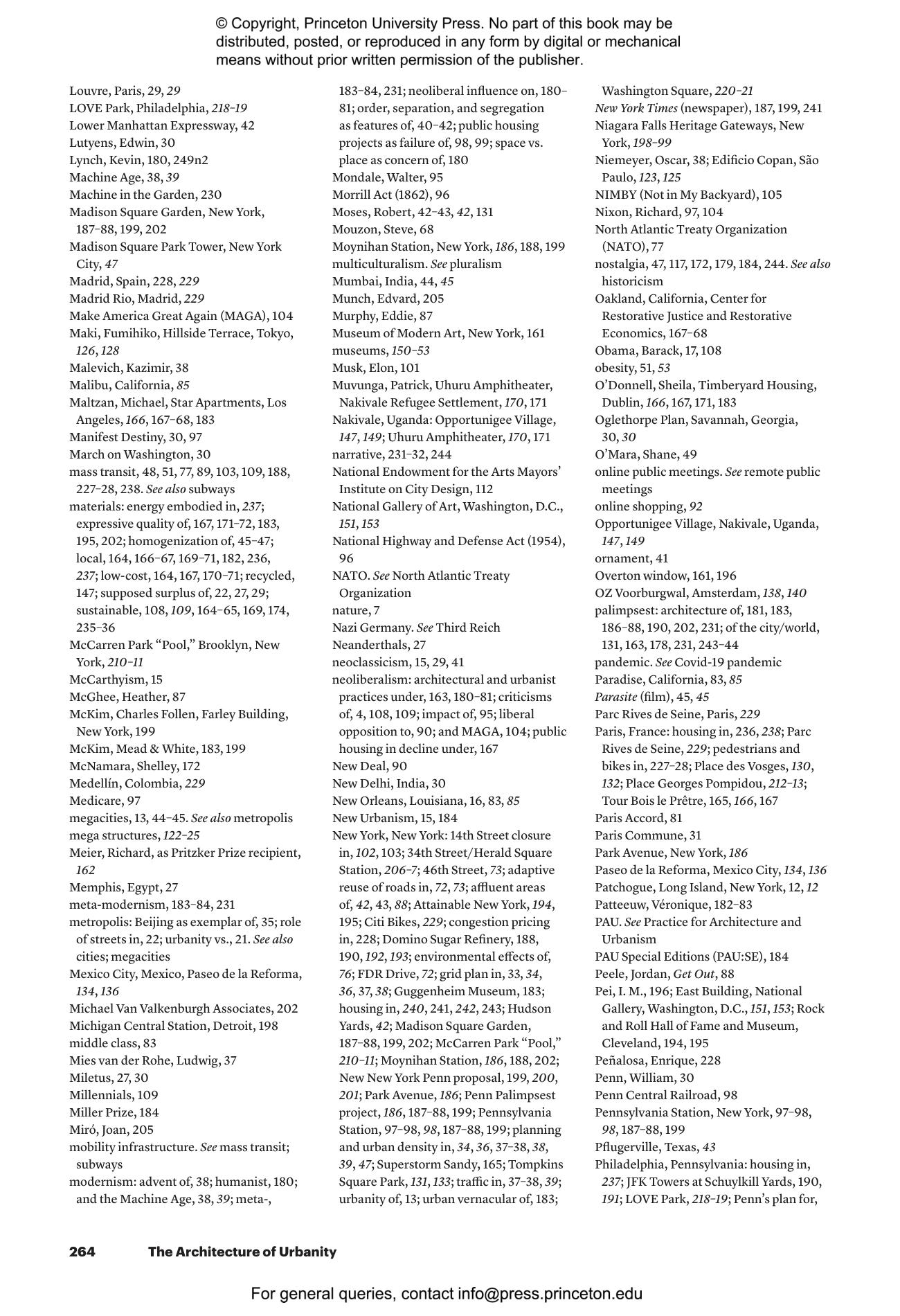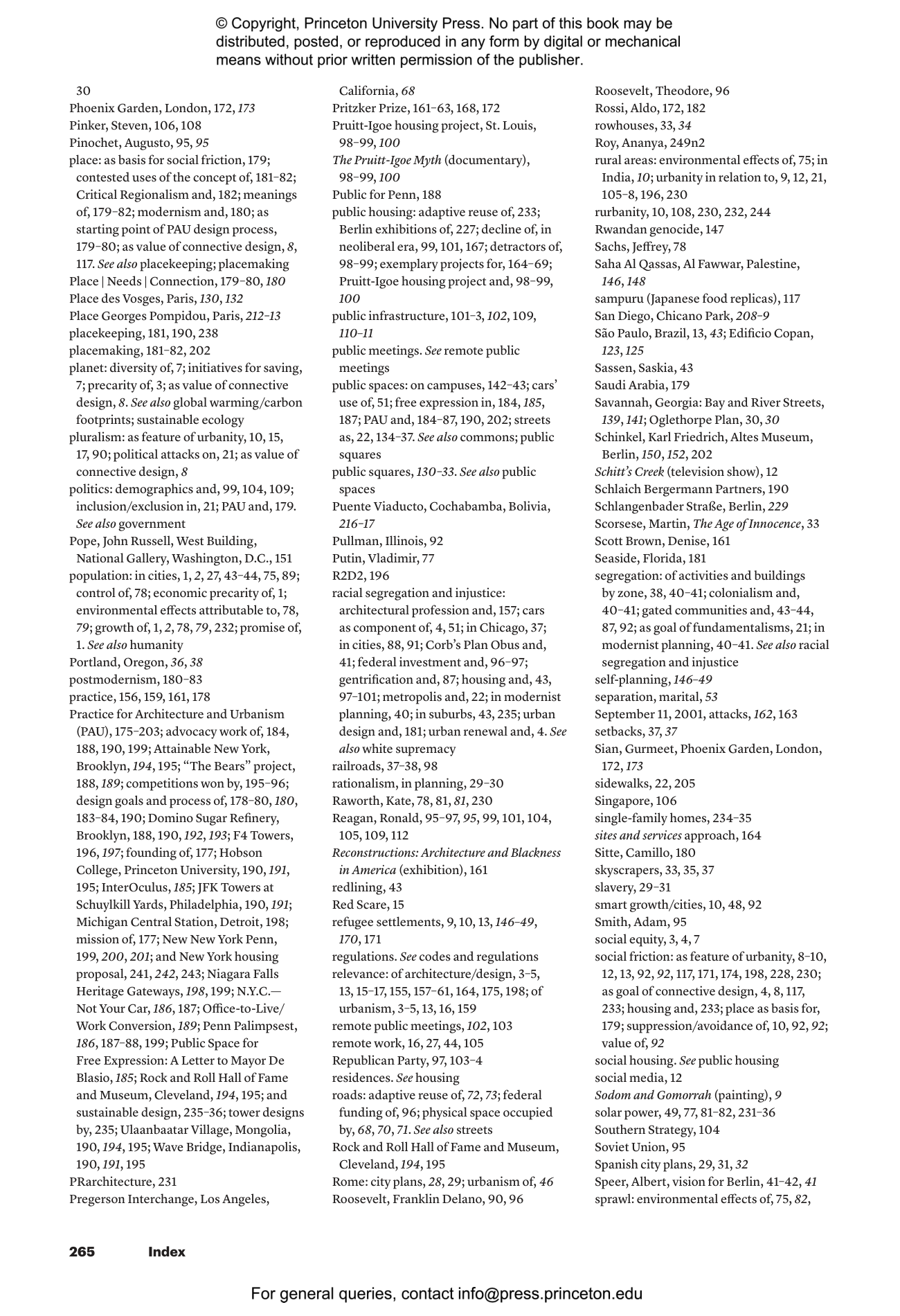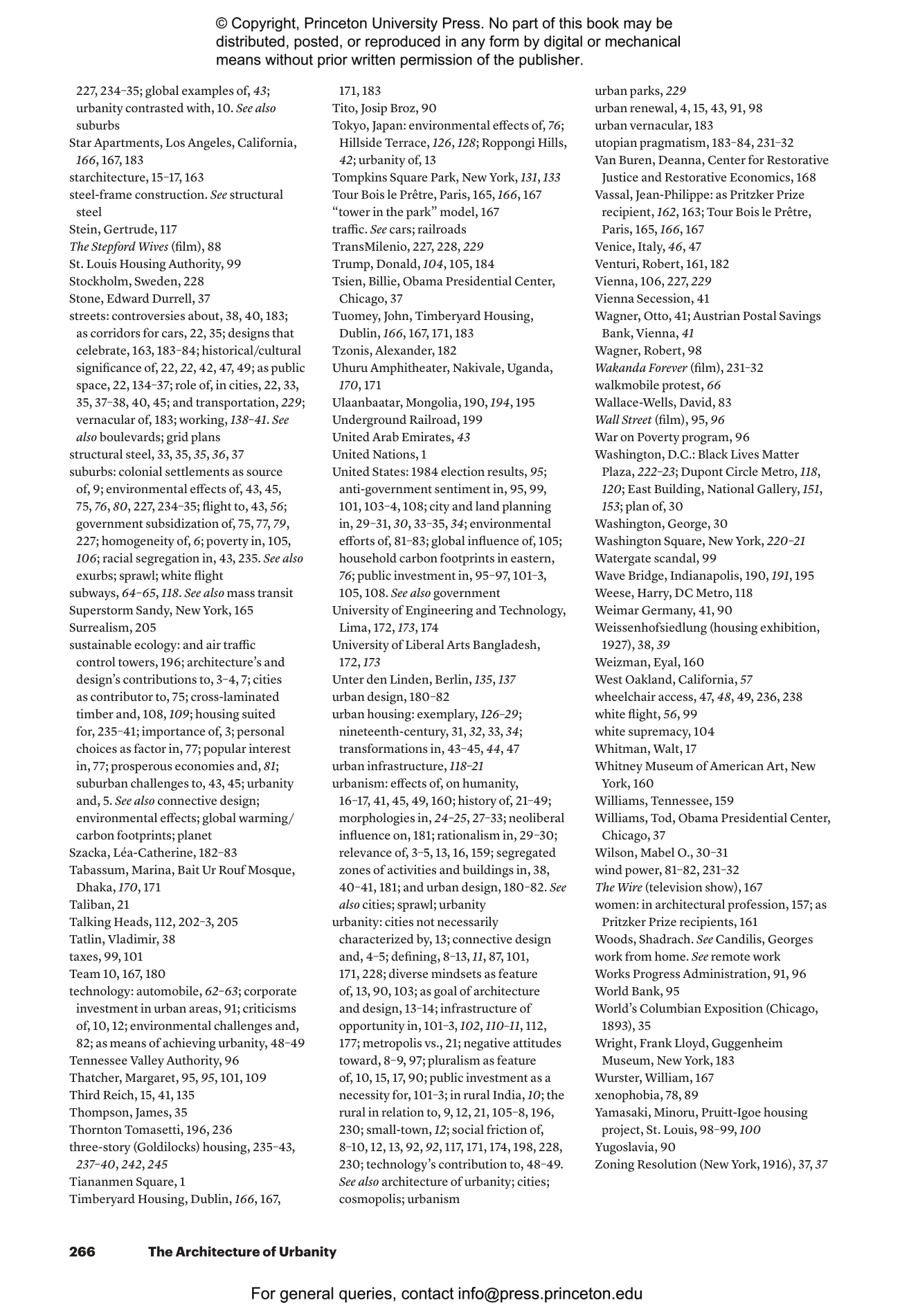The world is facing unprecedented challenges, from climate change and population growth, to political division and technological dislocation, to declining mental health and fraying cultural fabric. With most of the planet’s population now living in urban environments, cities are the spaces where we have the greatest potential to confront and address these problems. In this visionary book, Vishaan Chakrabarti argues for an “architecture of urbanity,” showing how the design of our communities can create a more equitable, sustainable, and joyous future for us all.
Taking readers from the great cities of antiquity to the worldwide exurban sprawl of our postindustrial age, Chakrabarti examines architecture’s relationship to history’s greatest social, technological, and environmental dilemmas. He then presents a rich selection of work by a global array of practicing architects, demonstrating how innovative design can dramatically improve life in big cities and small settlements around the world, from campuses and refugee camps to mega-cities like São Paulo, Lima, Los Angeles, New York, Paris, and Tokyo.
Lavishly illustrated with a wealth of original graphics, data visualizations, photographs, and drawings, The Architecture of Urbanity eloquently explains why cities are the last, best hope for humanity, and why designers must, alongside political, business, community, and cultural leaders, steward the healing of our planet.
Awards and Recognition
- A Curbed Design and Architecture Book to Gift This Year
- A Wall Street Journal Holiday Gift Book – Architecture
- Recommended by Streetsblog USA as a Gift for Sustainable Transportation Advocates
- A 6sqft Designer Gift Pick
- A Fast Company Best Design Book of the Year
"[Vishaan Chakrabarti] takes on the important subject of cities—their challenges and their future. The book bristles with opinions on matters ranging from the urban impact of climate change to how to fix social housing. As one example, Mr. Chakrabarti resists the smart-cities movements that attempt to maximize efficiency through technology (think delivery drones). He favors designs that generate “positive social friction” of the kind that takes place in the urban farmers market. . . . [Readers] can admire the ambition and range of his knowledge, and his intelligent diagnoses of what exactly is awry."—Cammy Brothers, Wall Street Journal
"Like the dense urban places he advocates for, architect Vishaan Chakrabarti packs a lot into a compact package. This eminently portable manifesto makes the grandest possible case for architecture, not just as the art of putting up individual buildings, but as a tool to help people from different cultures interact. Asking architects to tackle global social problems is an invigorating form of overreach, the kind that challenges the author and his colleagues to think about doing less harm."—Justin Davidson, Curbed
"Building healthier, more inclusive housing is also the subject of Vishaan Chakrabarti’s latest monograph, The Architecture of Urbanity. . . . To keep up with global population growth, Chakrabarti argues, will require the construction of 2.4 trillion square feet of new space over the next 40 years. That’s a lot of new building, and here Chakrabarti makes an argument for dense urban spaces as the solution for a healthy planet."—Mark Lamster, Dallas Morning News
"Chakrabarti offers new insights about urban design’s most significant obstacles and opportunities—and dispels a few commonly held myths. . . .Ambitious. . . . The arguments and topics addressed in The Architecture of Urbanity are highly relevant and valuable for the AEC industry as well as the general public. It is refreshing to have a voice like Chakrabarti’s championing architecture as a force for positive change, and to a broad audience. Let us hope people listen."—Blaine Brownell, Architect Magazine
"[A] lively new volume. . . . Lay readers especially will benefit from Chakrabarti’s TED-talk-accessible accounts."—Thomas de Monchaux, Vital City
"[An] interesting read."—Adam Wagoner, Architect-ing podcast
"[In] The Architecture of Urbanity, Vishaan Chakrabarti tackles [architecture’s] ugliness—and the despair and social isolation it engenders. . . .[Chakrabarti argues] architecture can help repair a culture in crisis, encourage democracy, alleviate climate change, even increase joy and health and prosperity. . . .Chakrabarti offers gorgeous examples, from Paris’s Place des Vosges to Saha Al Qassas in the West Bank. Examples of PAU’s work reinforce his point, as do the whimsical drawings at the book’s end, illustrations of people happily appropriating urban spaces in the interest of justice, joy, and connection. We need this approach to architecture. We need to feel welcome again; to feel a sense of comfort and shared delight; to honor the past; to remember we are all here together."—Jeannette Cooperman, The Common Reader
"[The Architecture of Urbanity's] recommendations [are] precisely what this dark moment requires."—Bill Millard, Common Edge
“We are what we build. The Architecture of Urbanity shows how the history of humanity—its politics, culture, economics, and health—is shaped by the fundamental and intrinsically human forces of city design. In an increasingly fragmented and isolated world, Chakrabarti identifies the essential connections between physical and human infrastructure that can bring us together—and the amazing notion that cities can bring jobs, justice, and joy while saving the planet in the process.”—Janette Sadik-Khan, Bloomberg Associates, Former Commissioner, New York City Department of Transportation
“The Architecture of Urbanity shows us how urban planning can be a force for good despite its historic complicity in the production of inequality. With passion and rigor, Chakrabarti lays out a vital vision for better cities, designed to create sustainable solidarity across lines of race, origin, and class.”—Heather C. McGhee, author of The Sum of Us: What Racism Costs Everyone and How We Can Prosper Together
“This book forcefully conveys the importance of good design and how it can transform cities for the better environmentally and economically. It is vital for policymakers and students alike.”—Norman Foster, founder, Foster + Partners
“Vishaan Chakrabarti offers an accessible, engaging account of the major challenges facing our cities, as well as design innovations across history that can give rise to more resilient and joyful urban life. This is urbanism that everyone can understand and feel excited to take part in.”—Jeanne Gang, FAIA, Int FRIBA
“Vishaan Chakrabarti makes a much-needed case for rethinking the capacities of design to solve the complex crises we face in climate, sustainability, and equity. This is an argument for long-term priorities over short-term profits, one in which design guides our decision making and helps us change course, leaving no one behind.”—Henk Ovink, Executive Director, Global Commission on the Economics of Water
